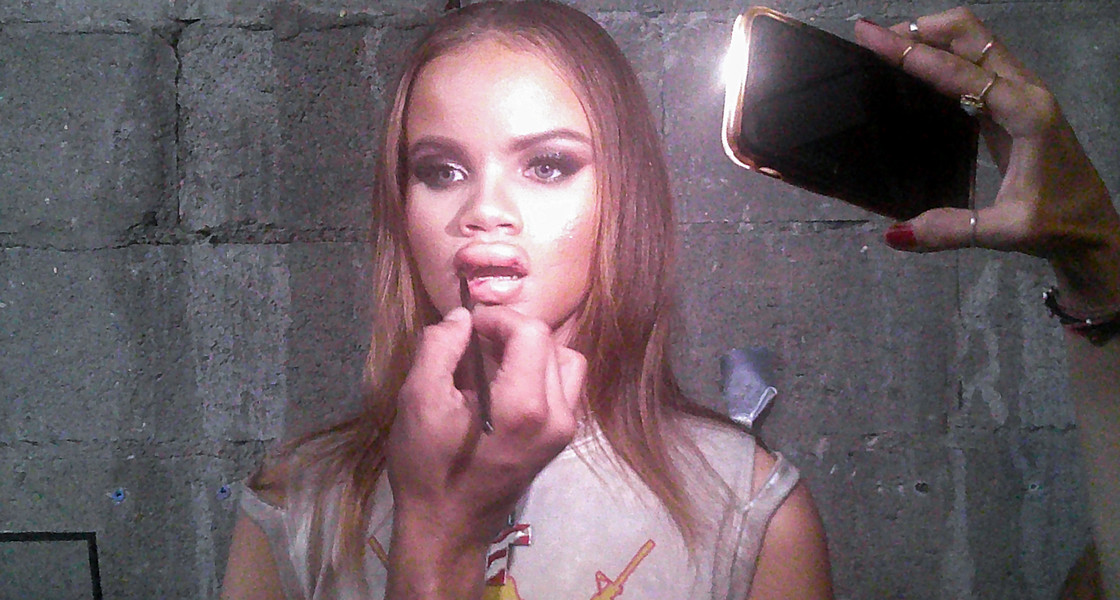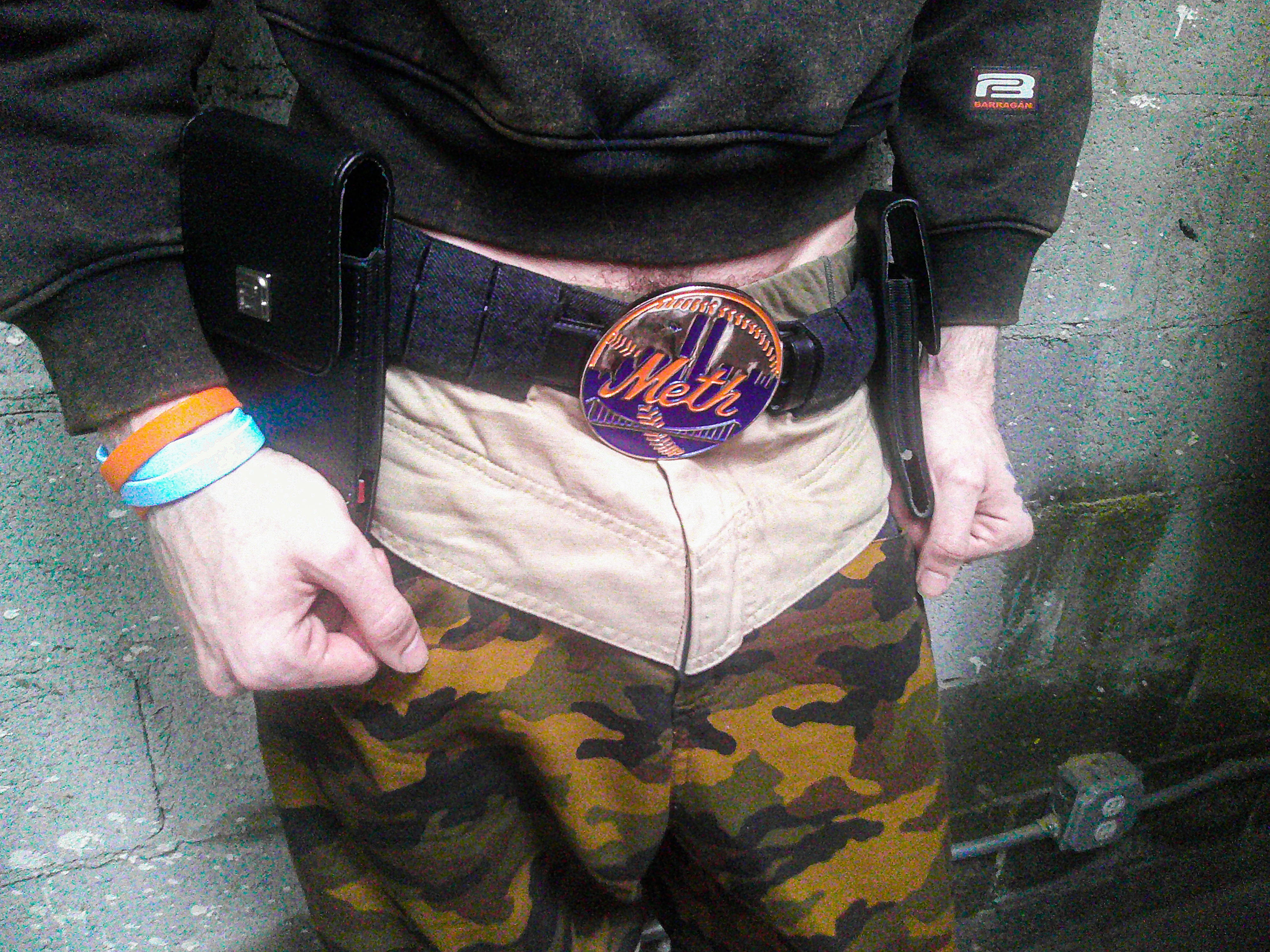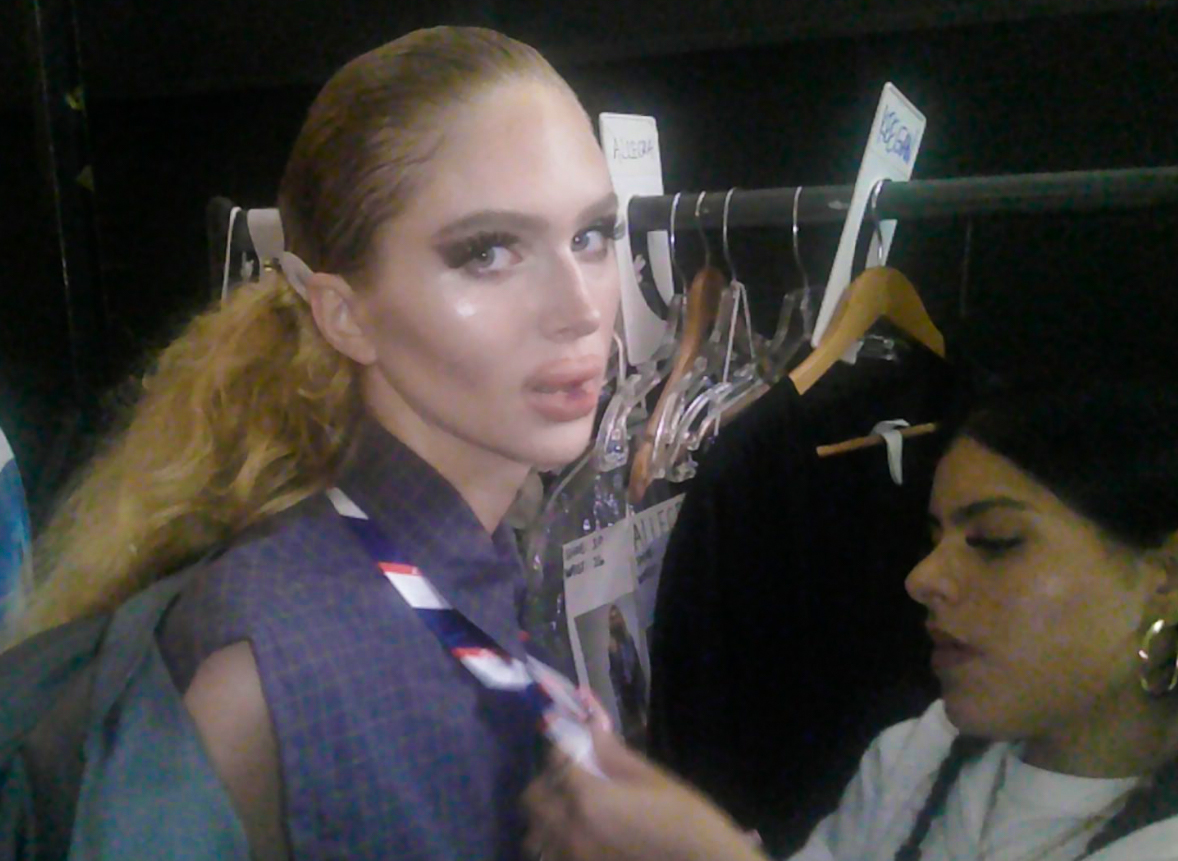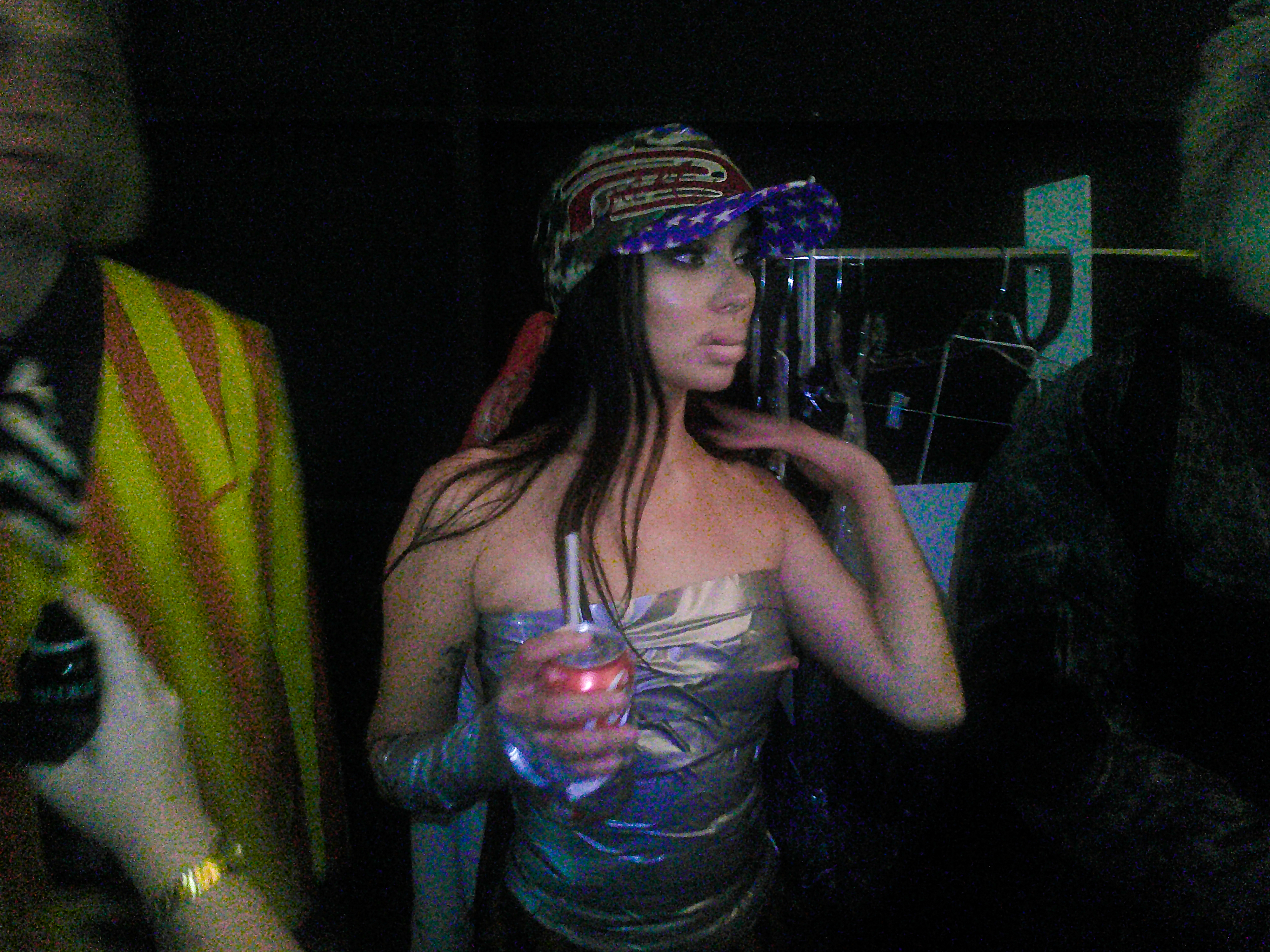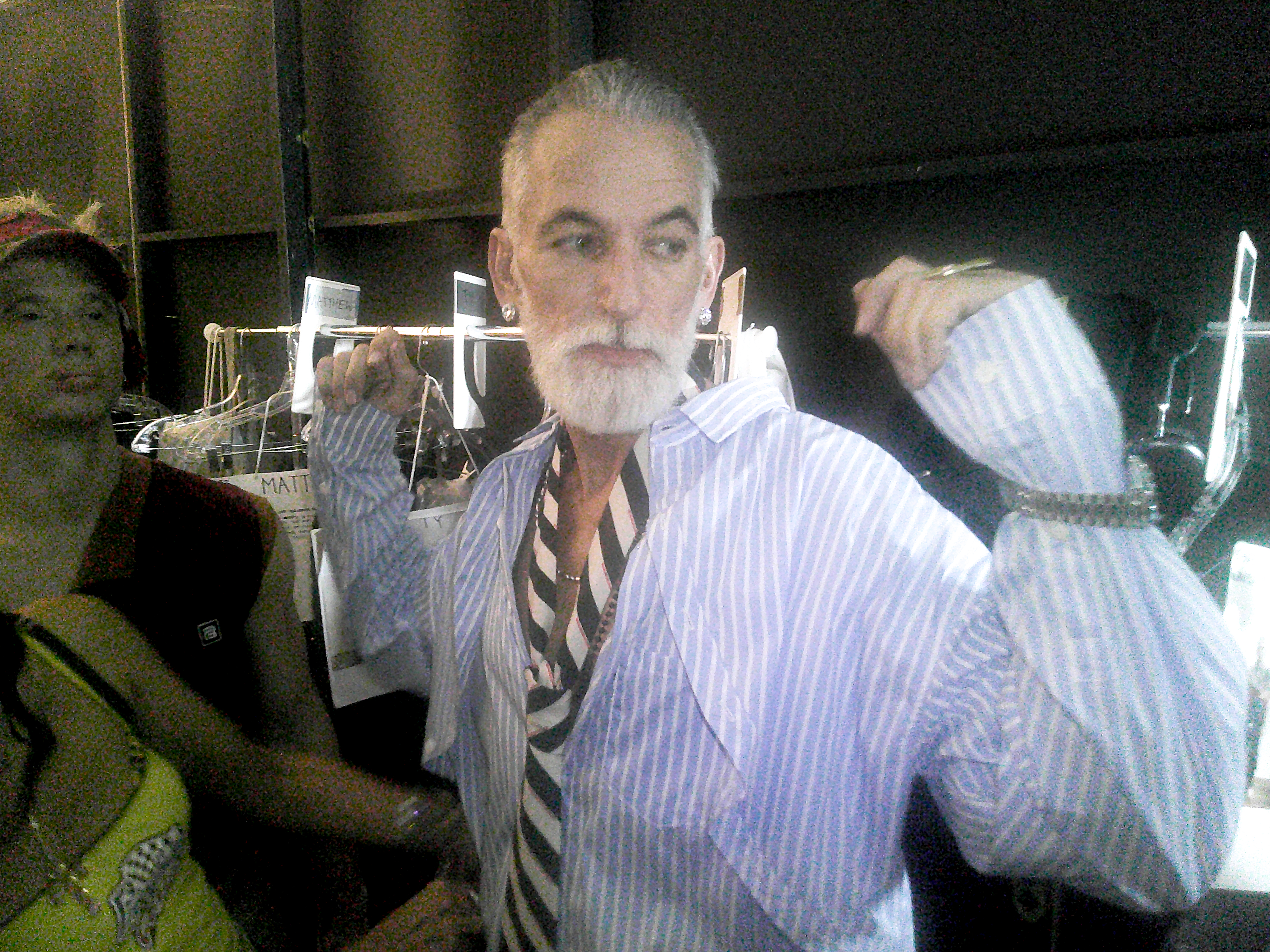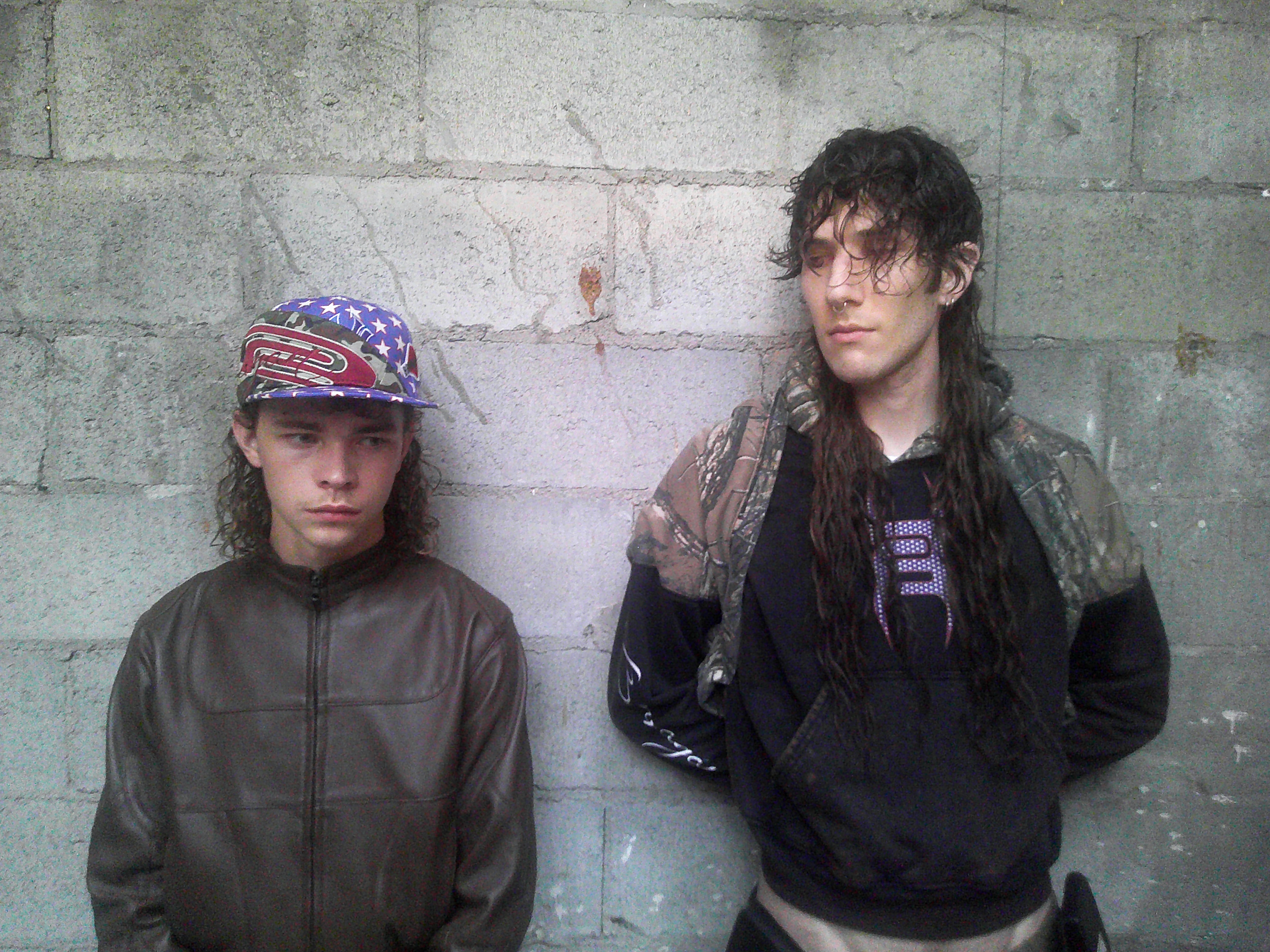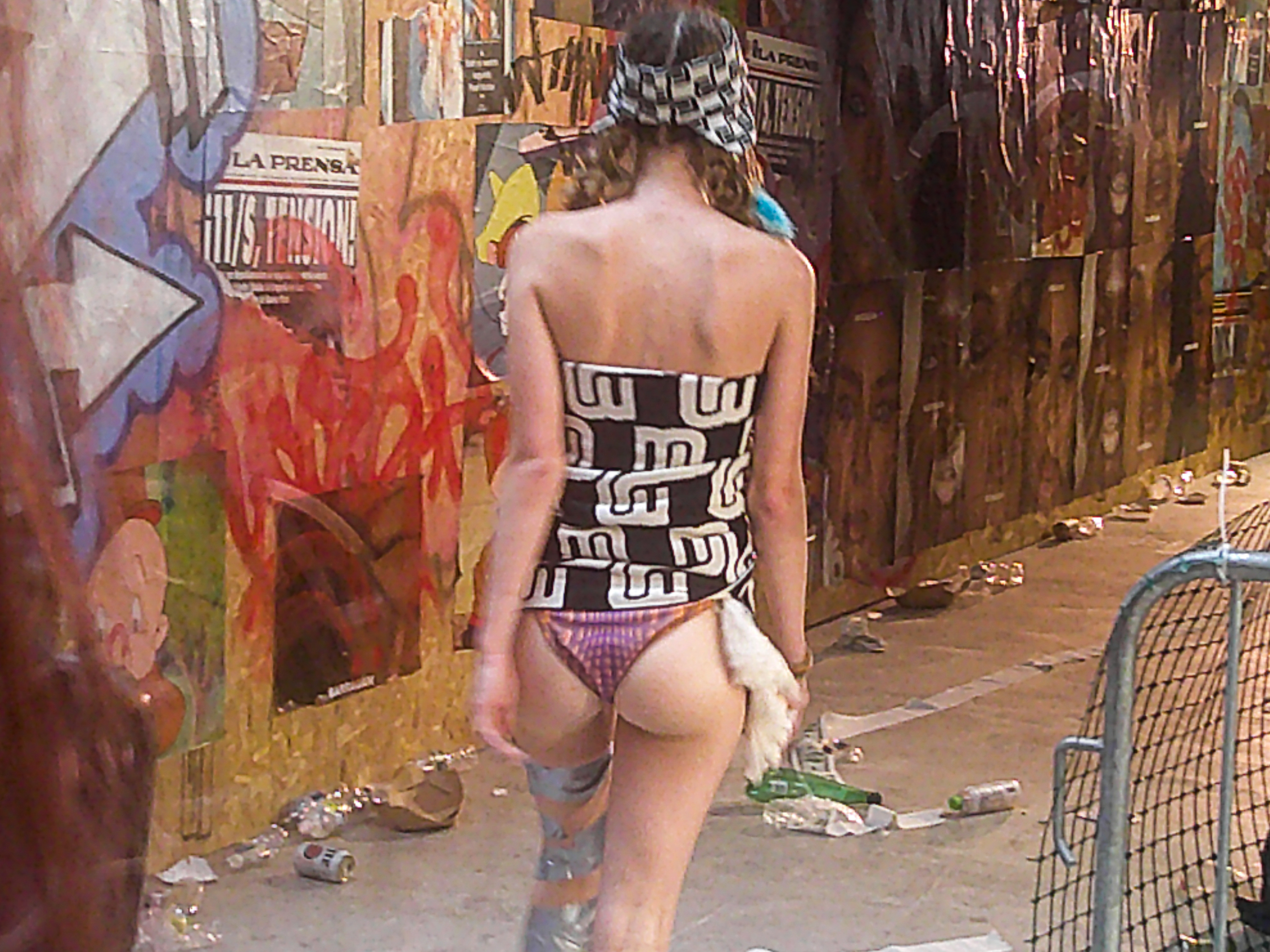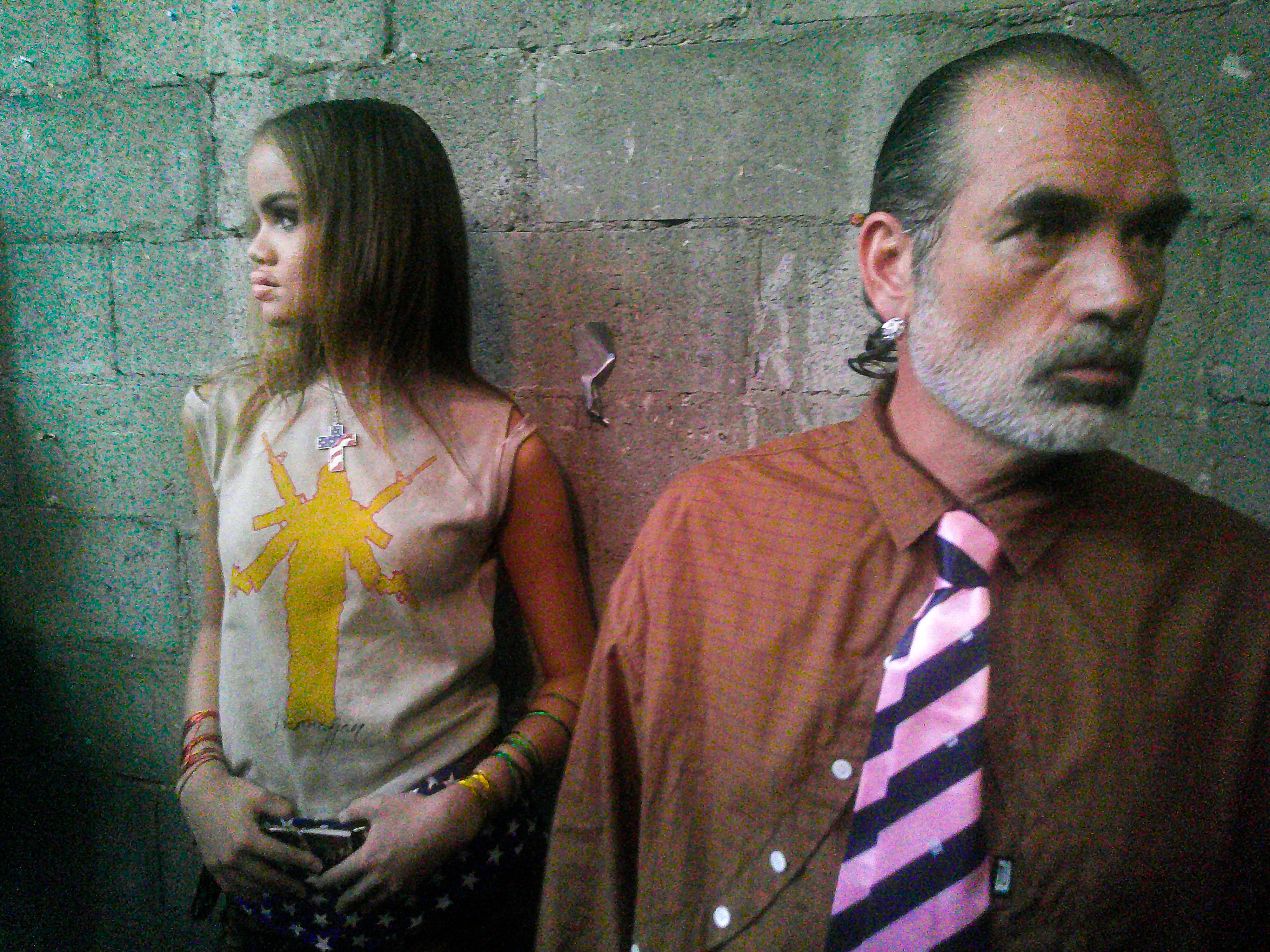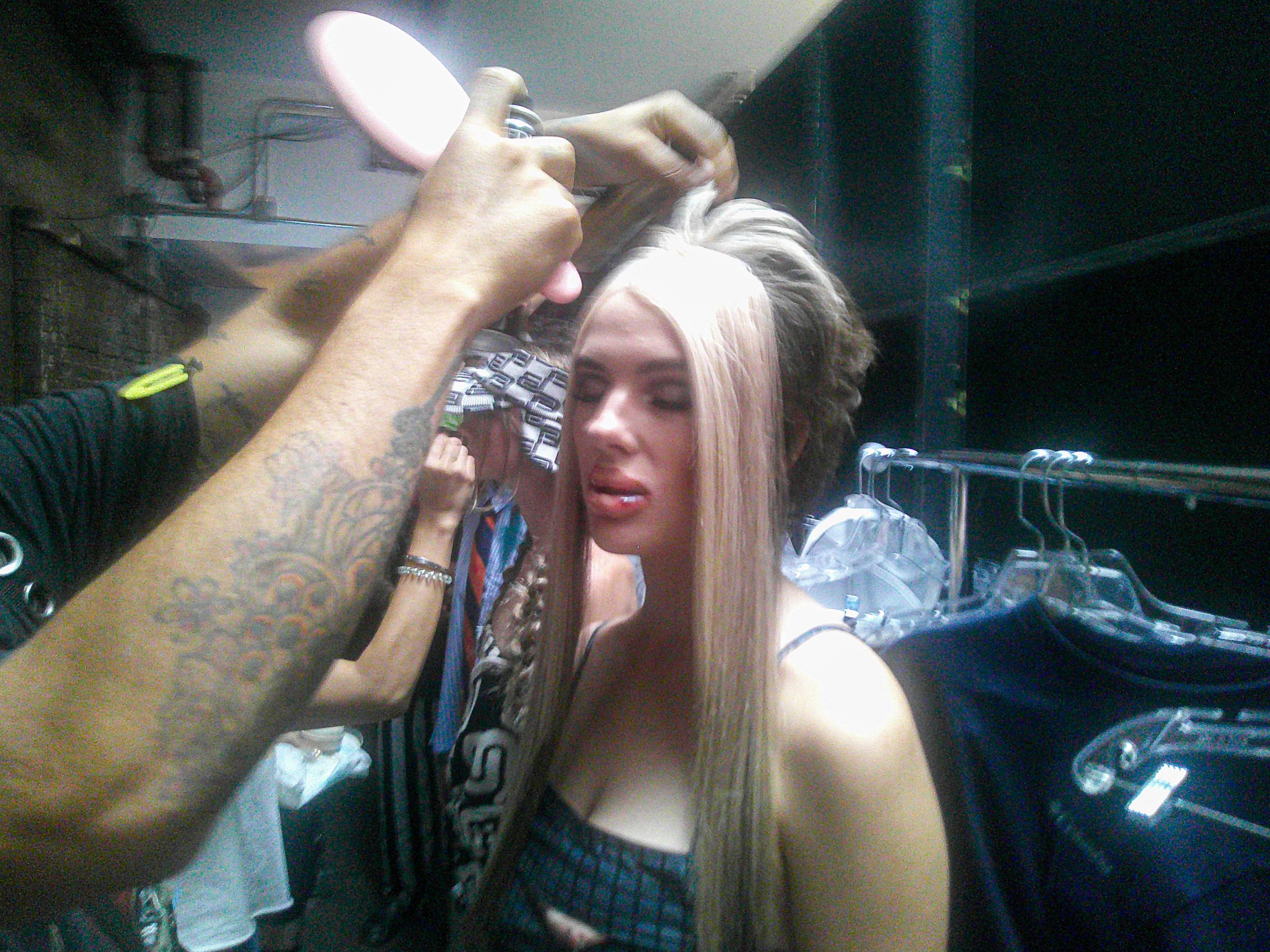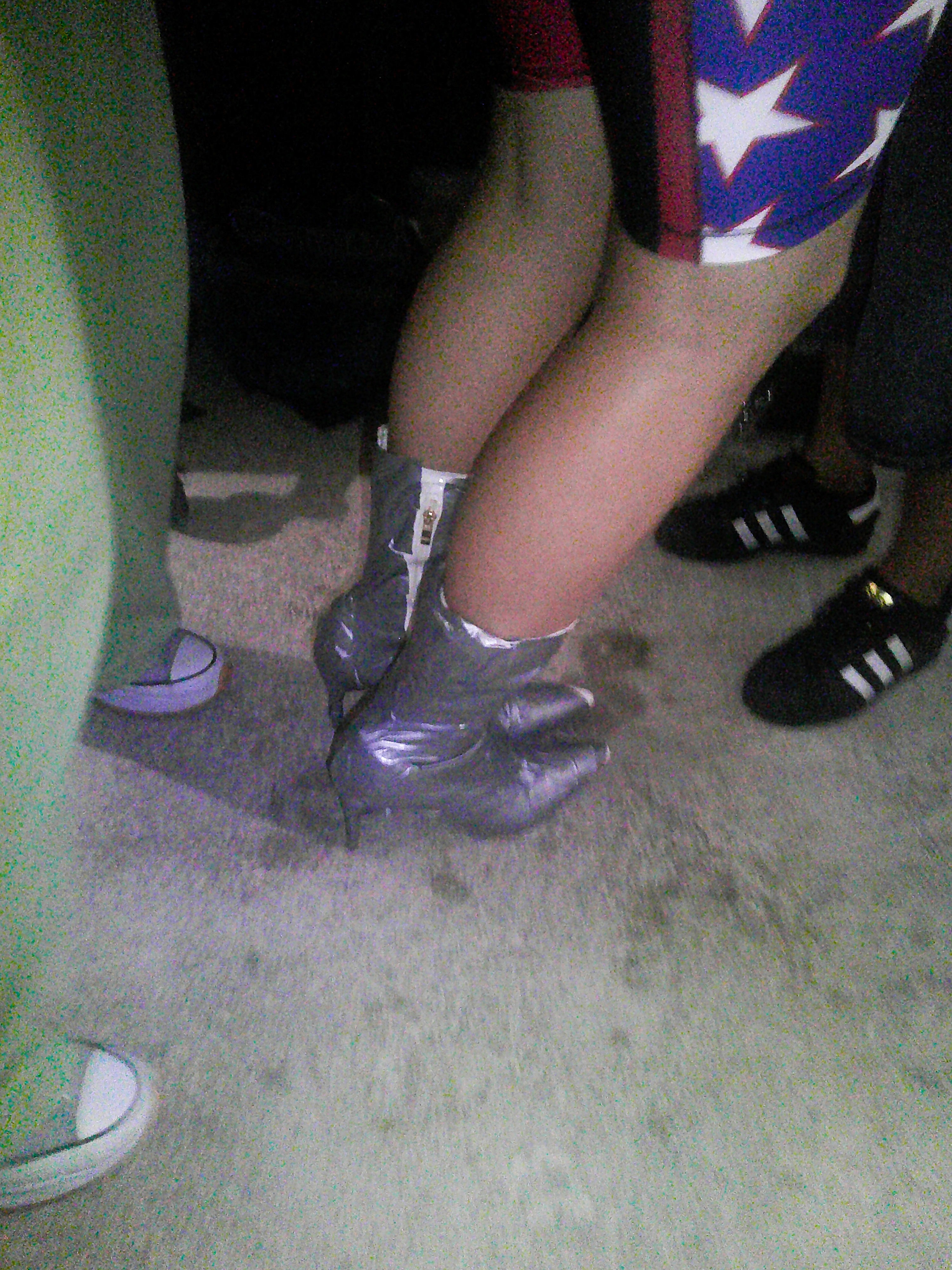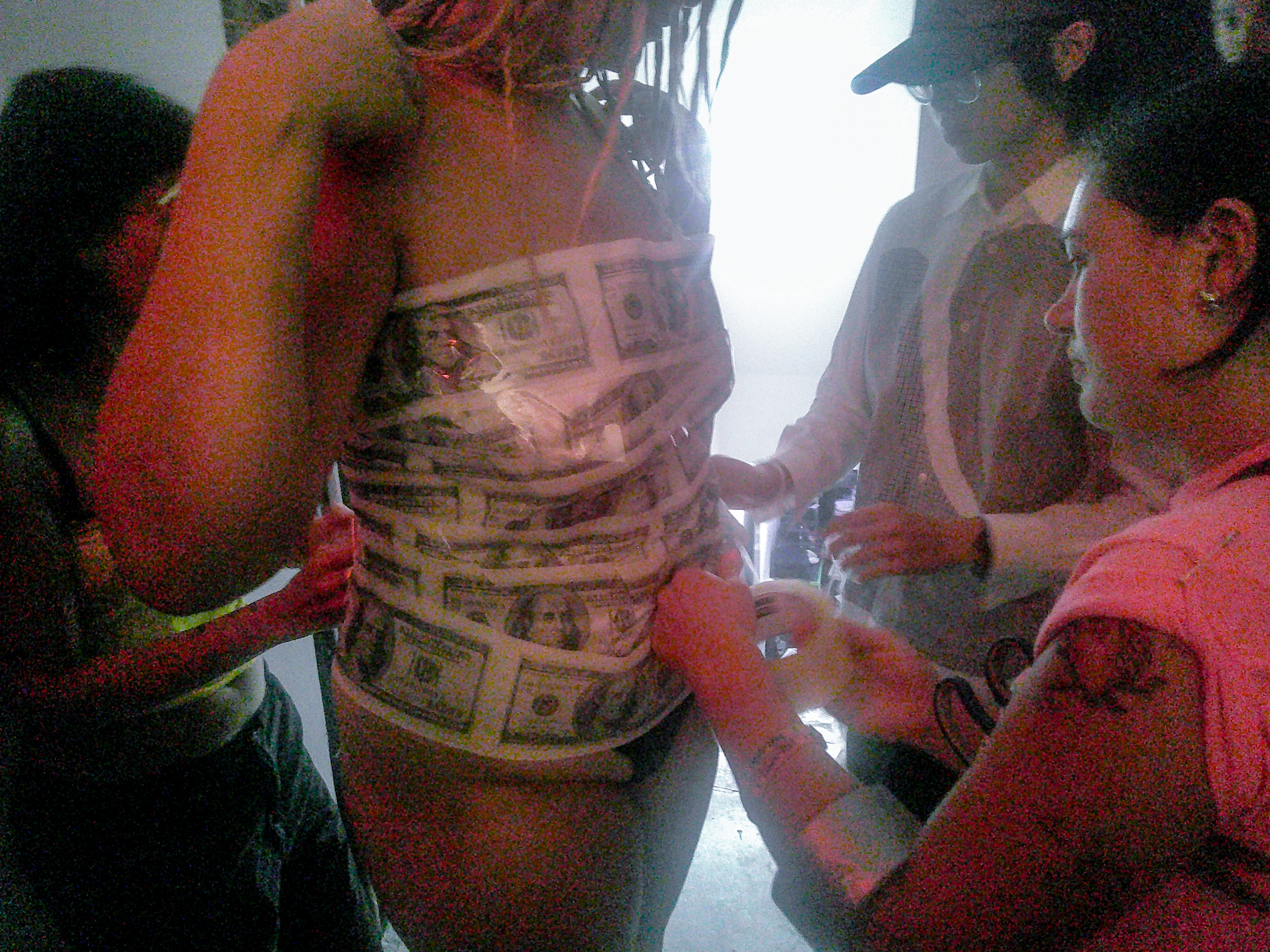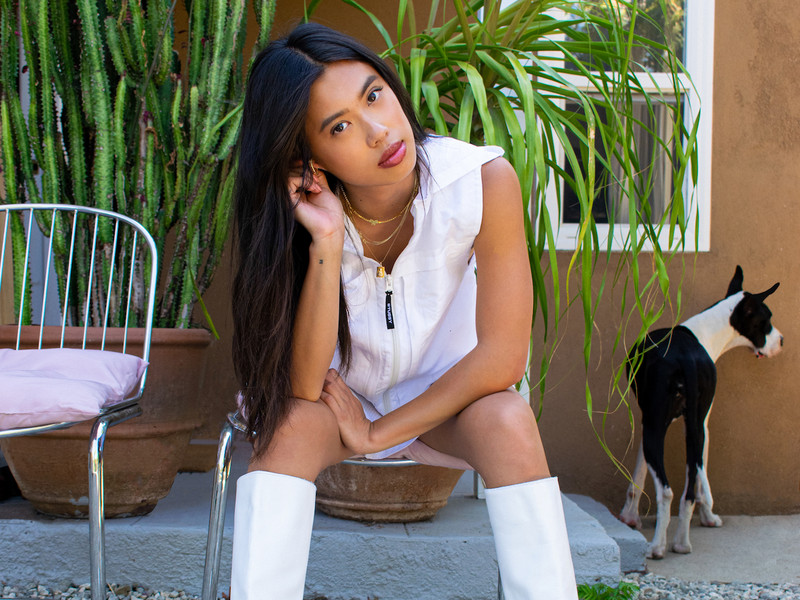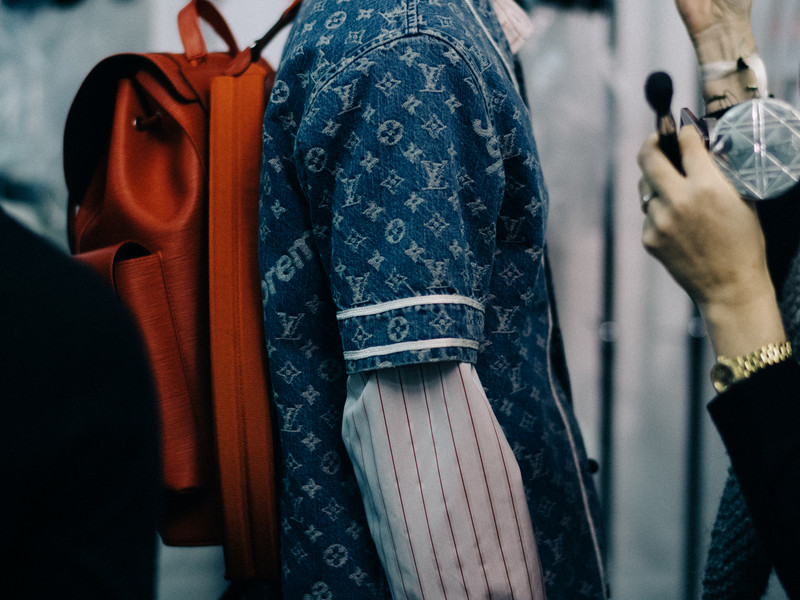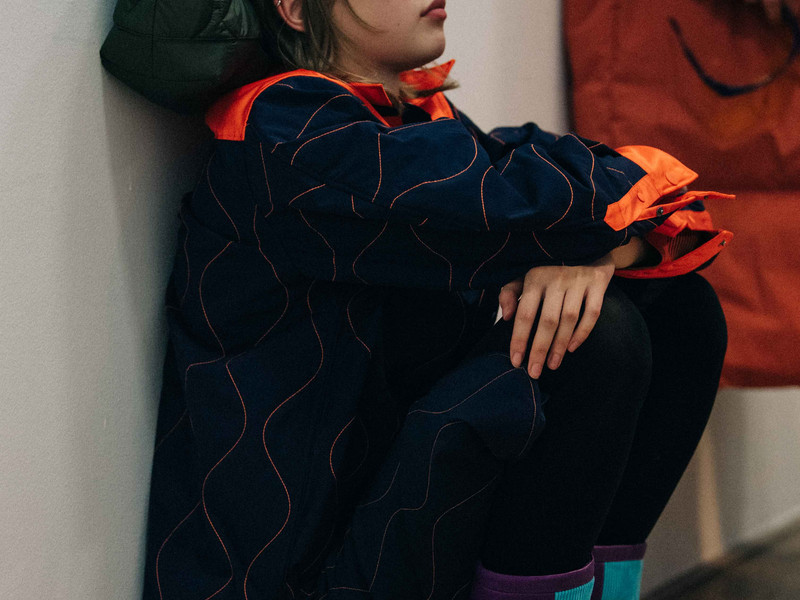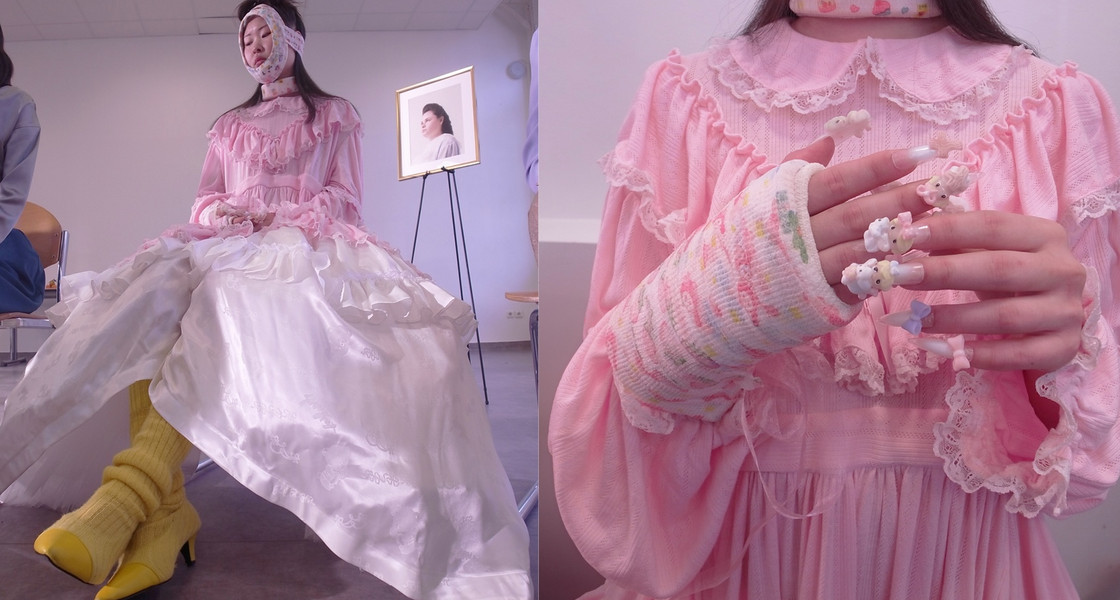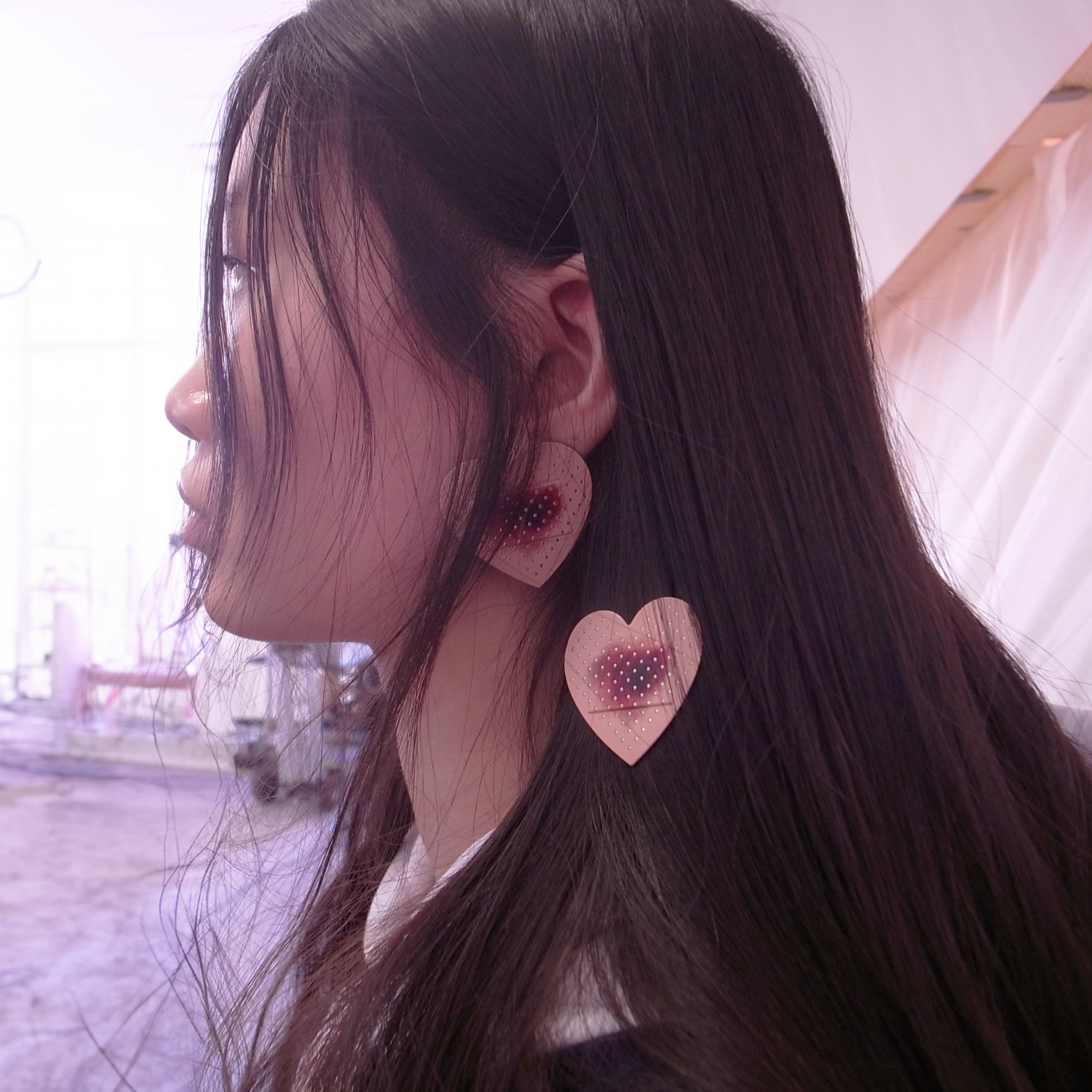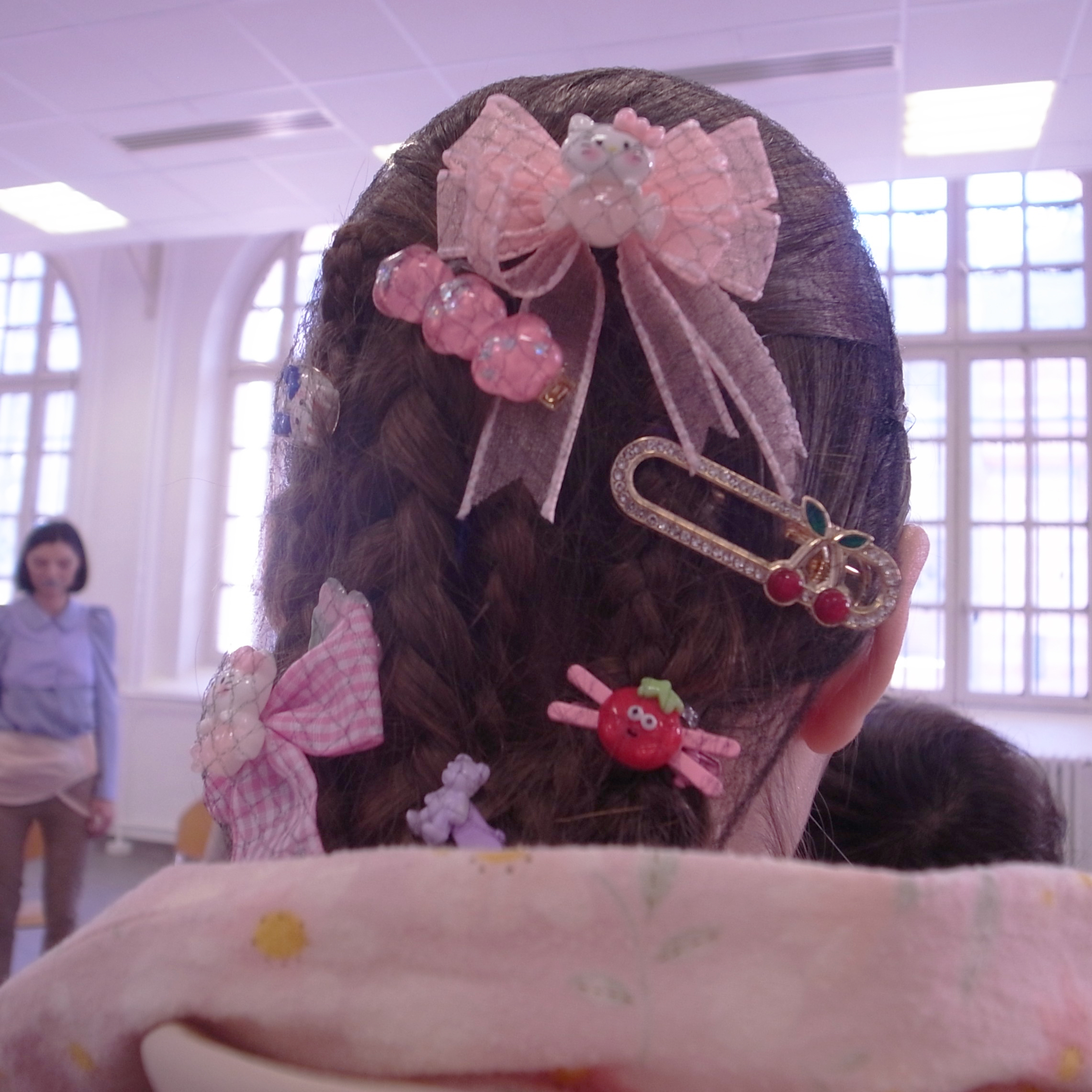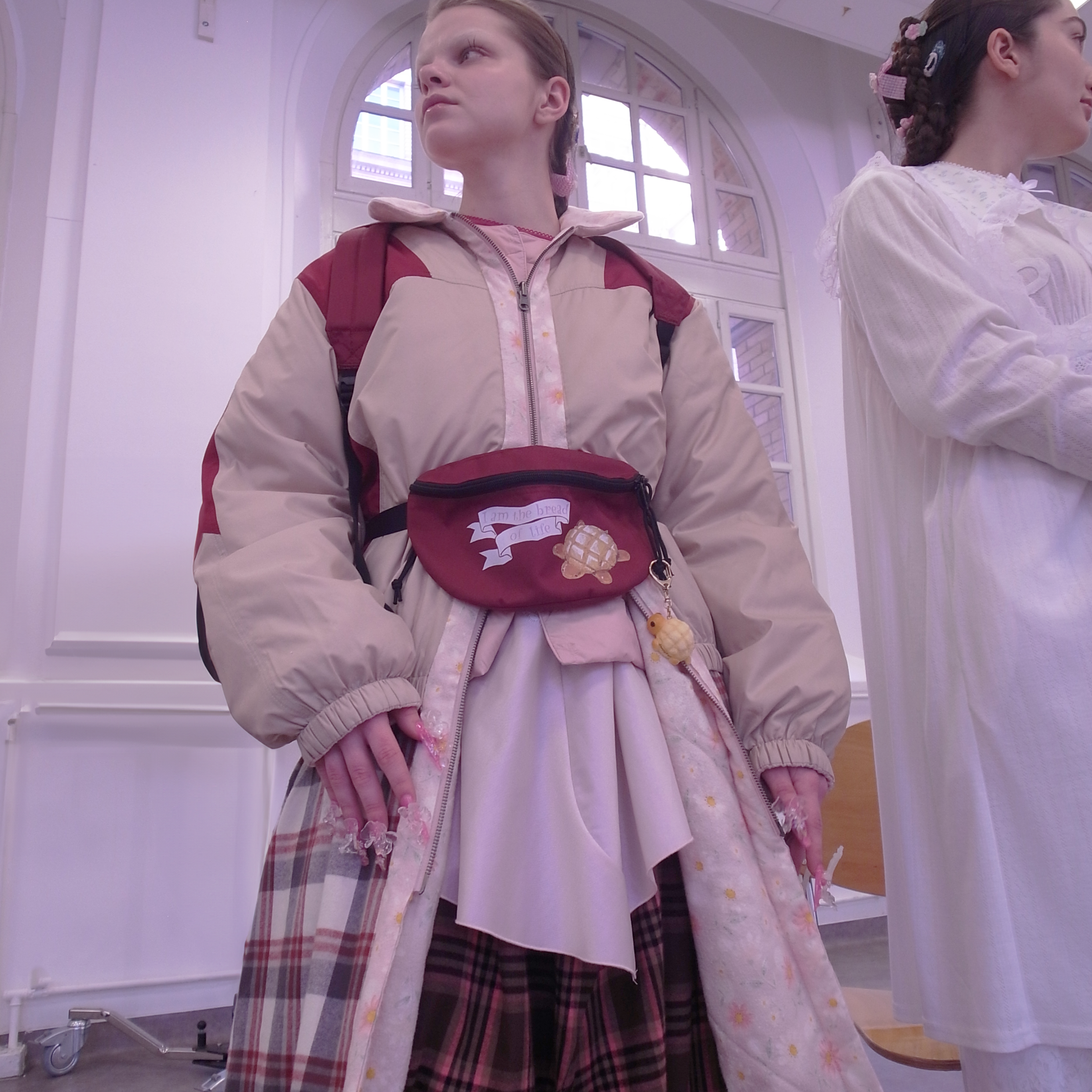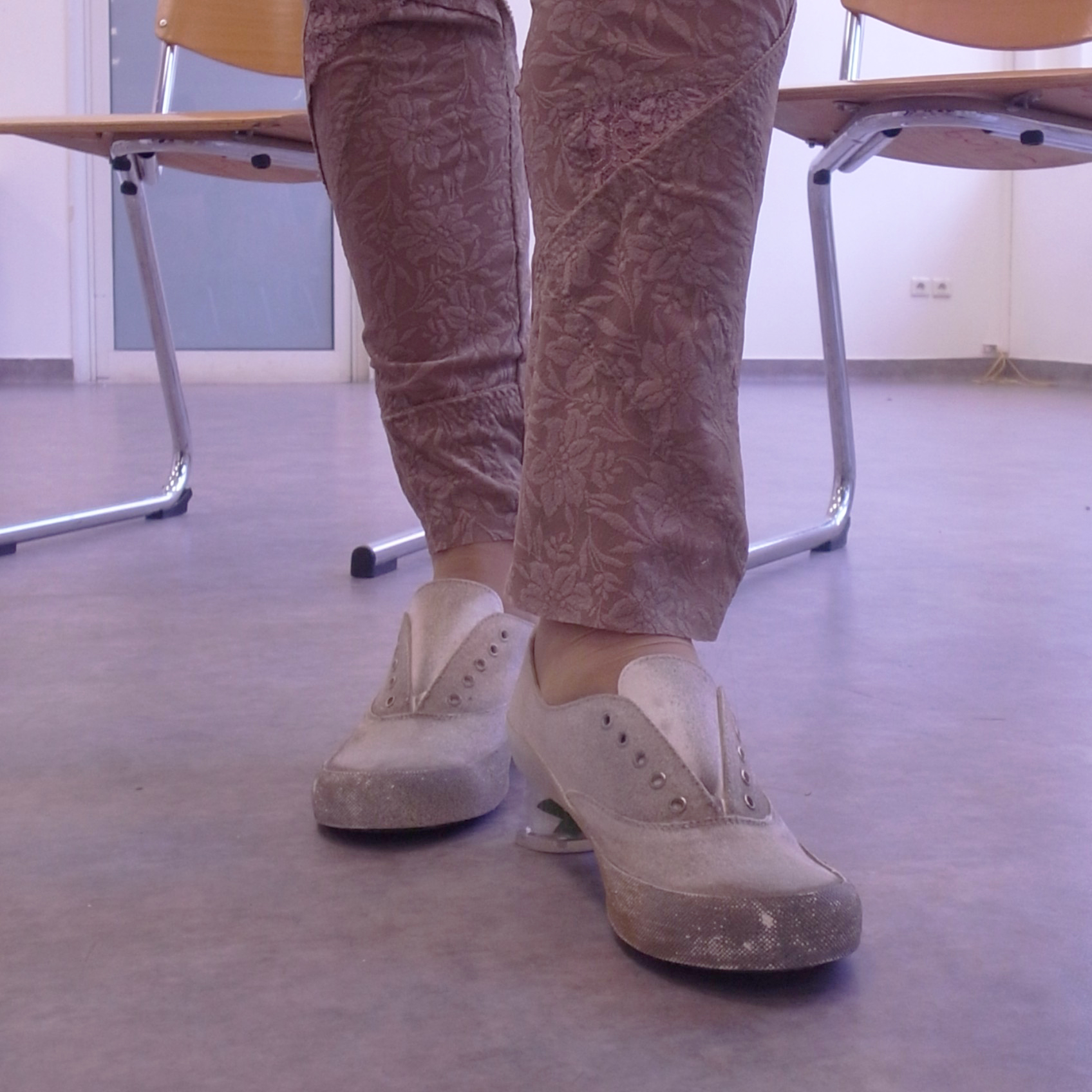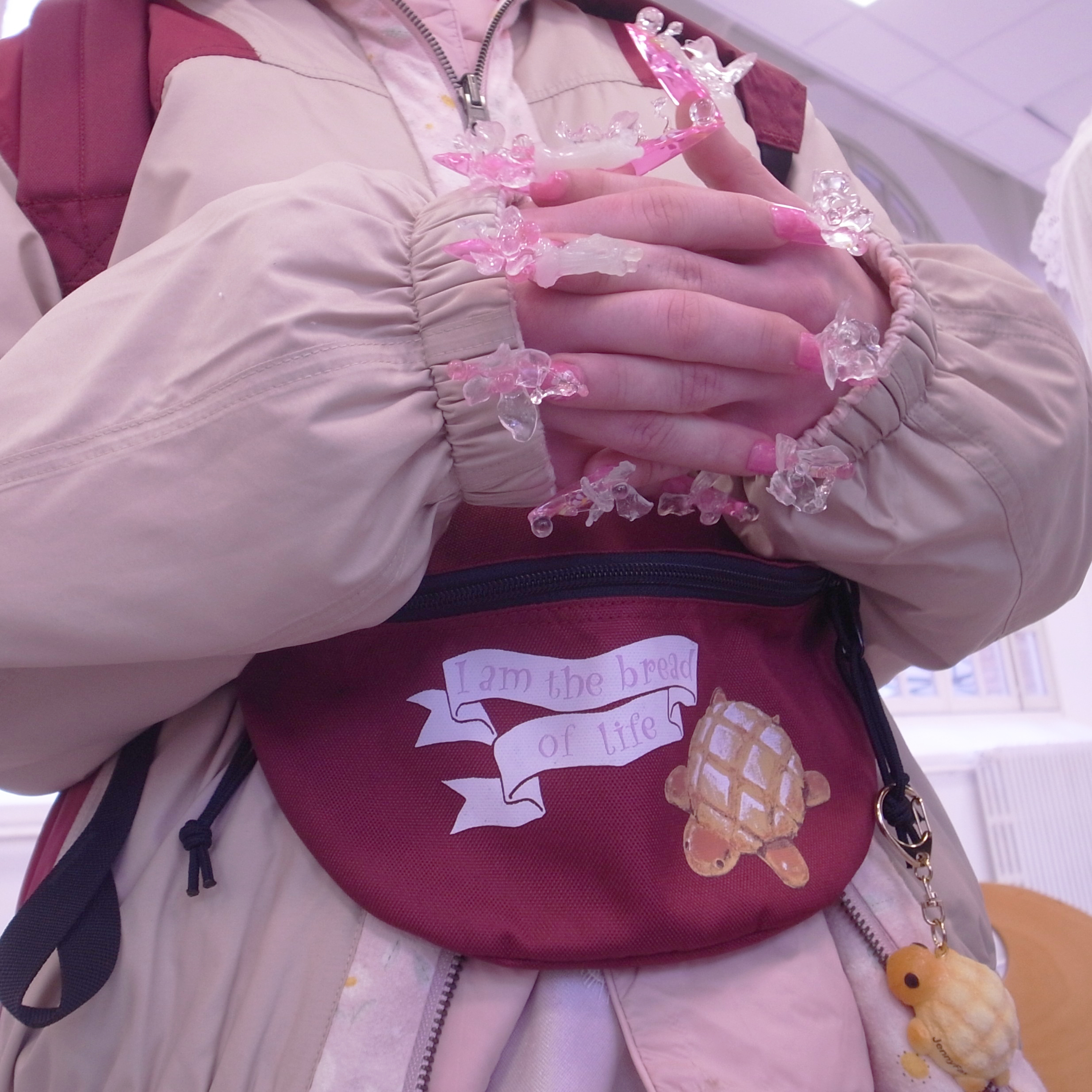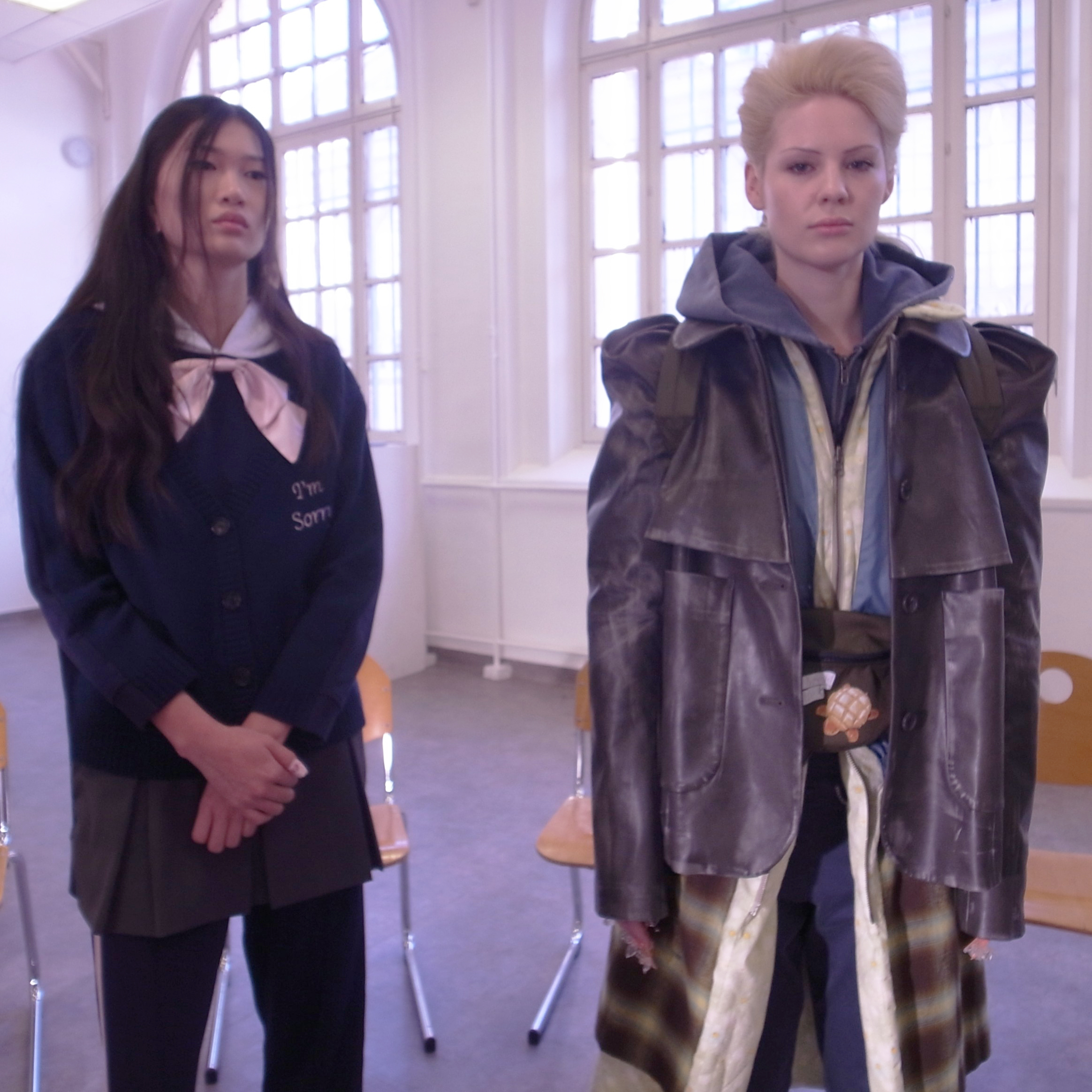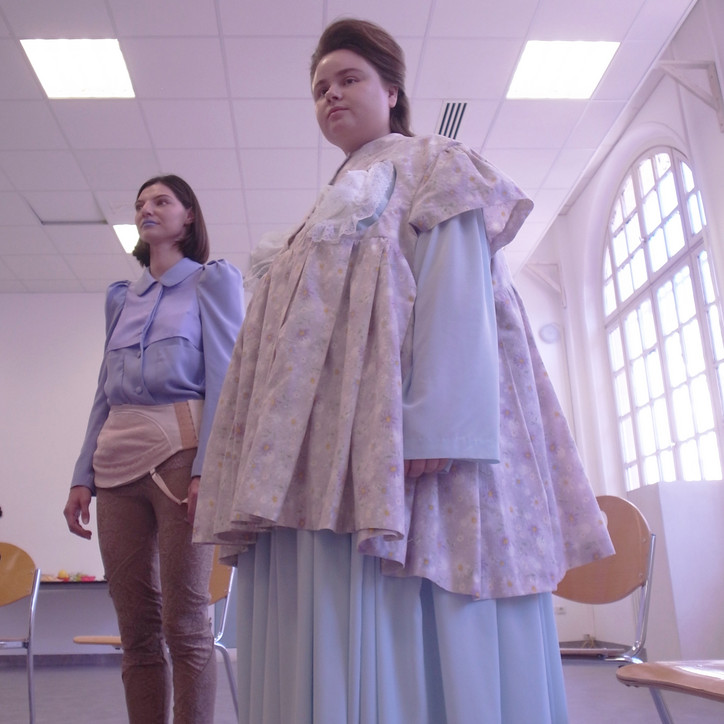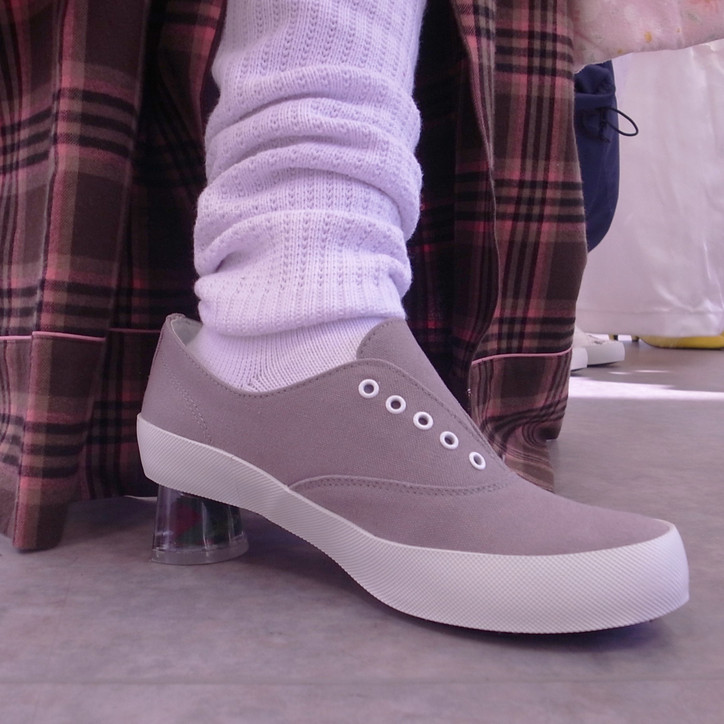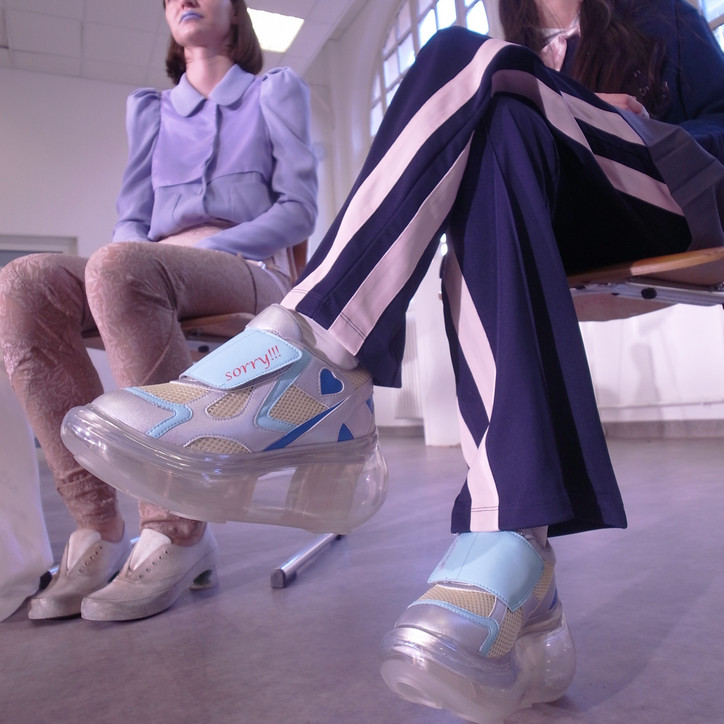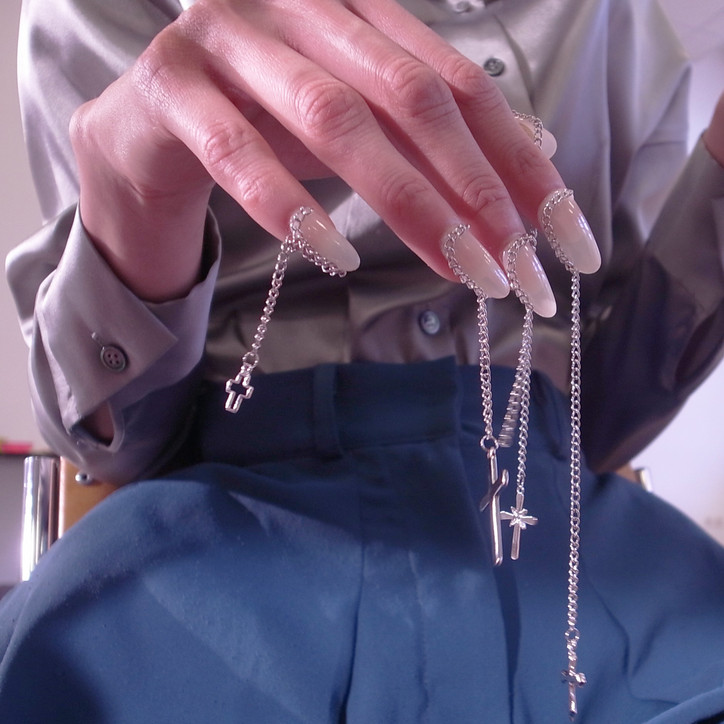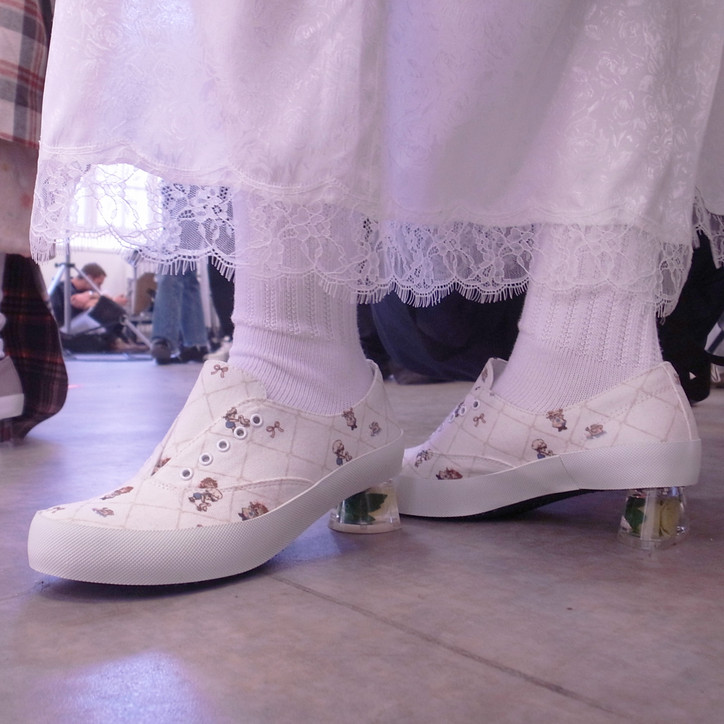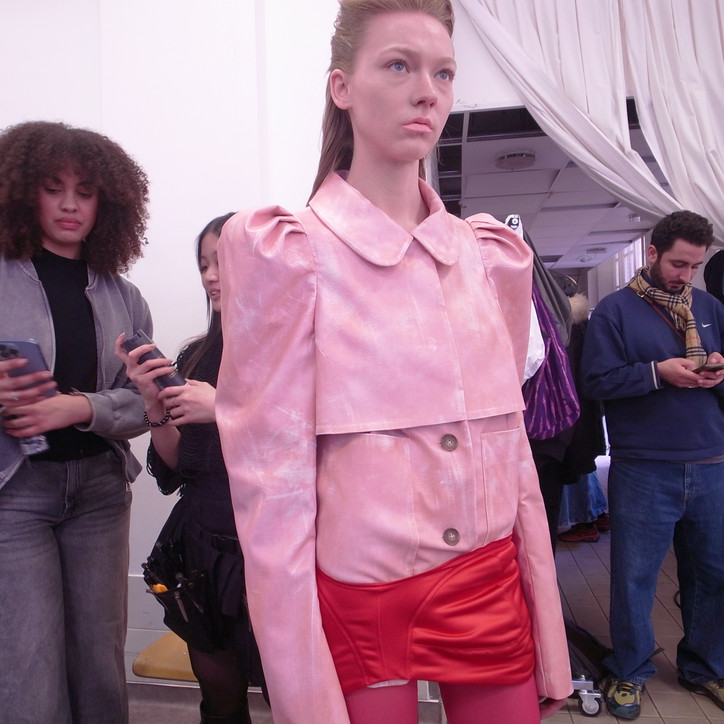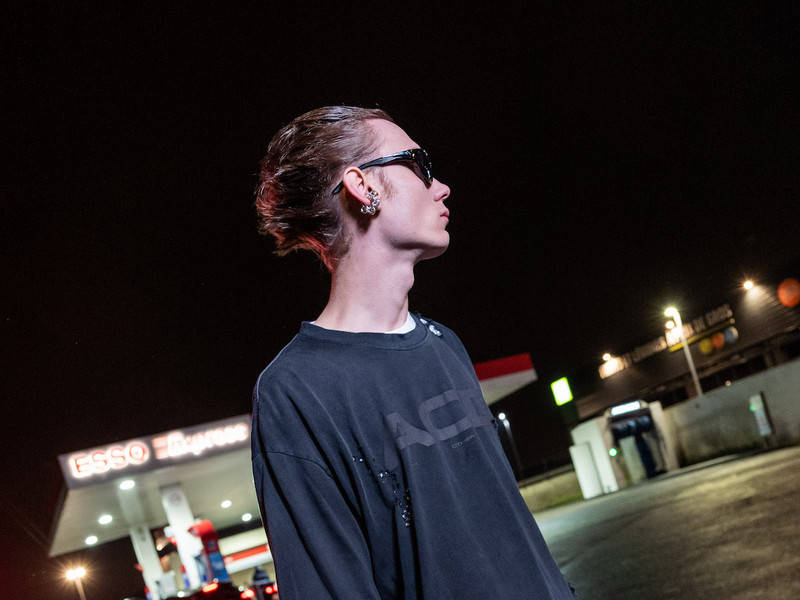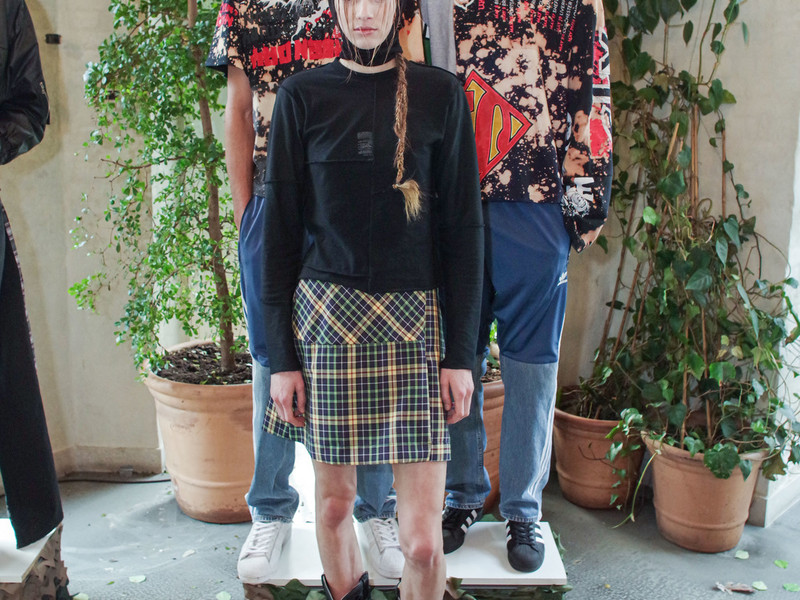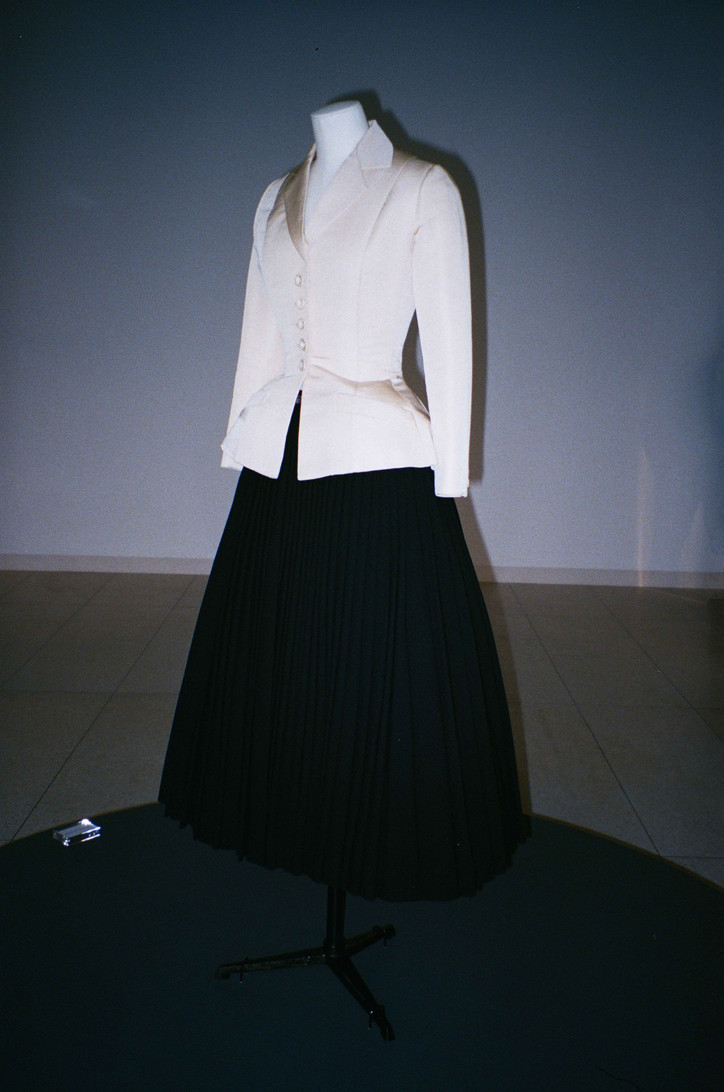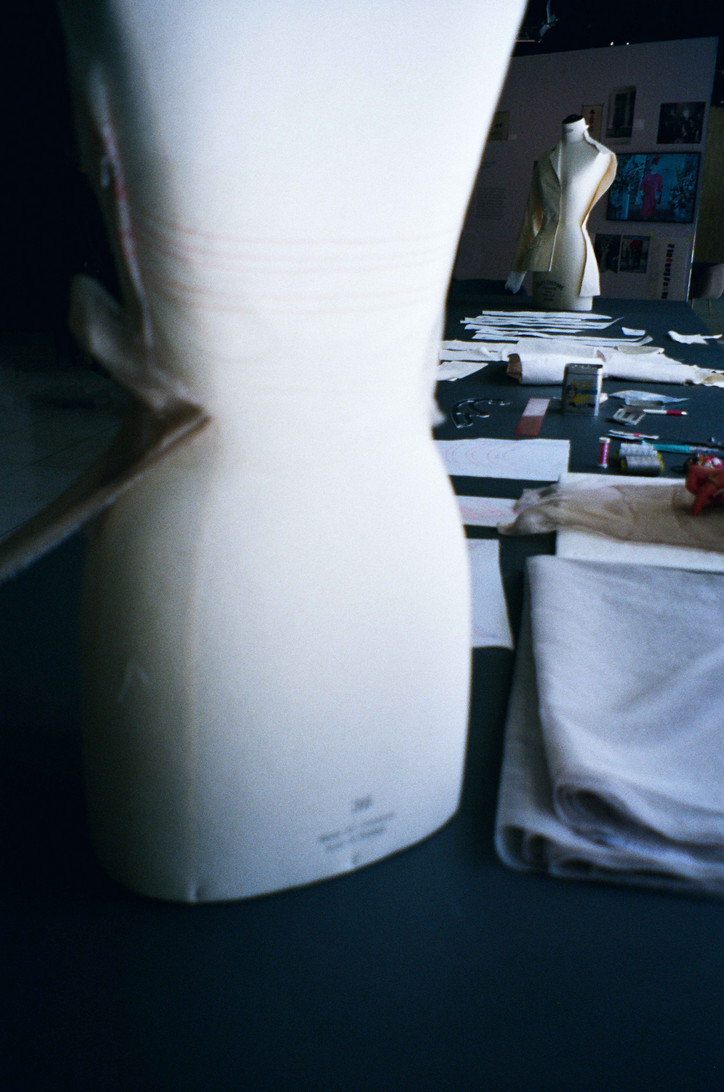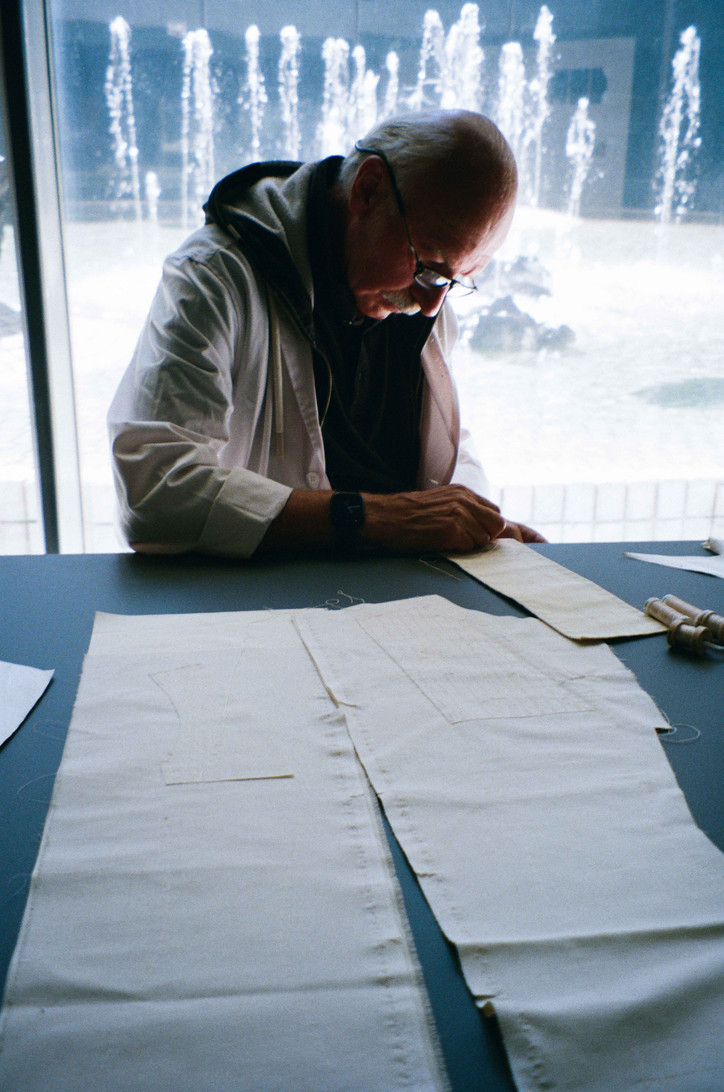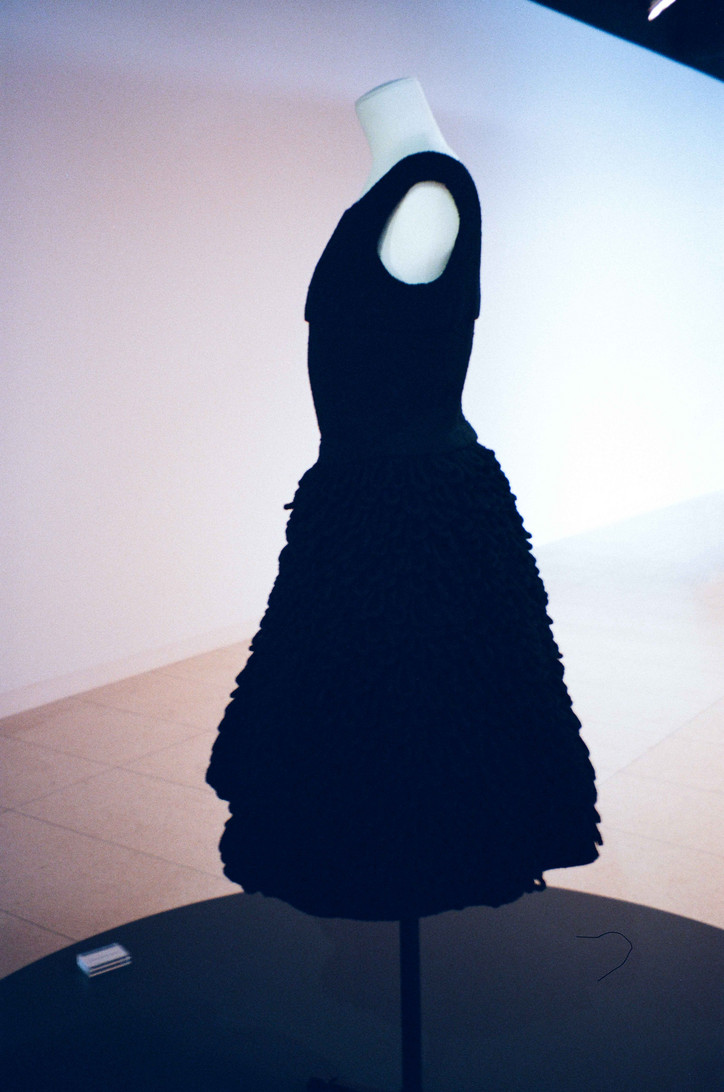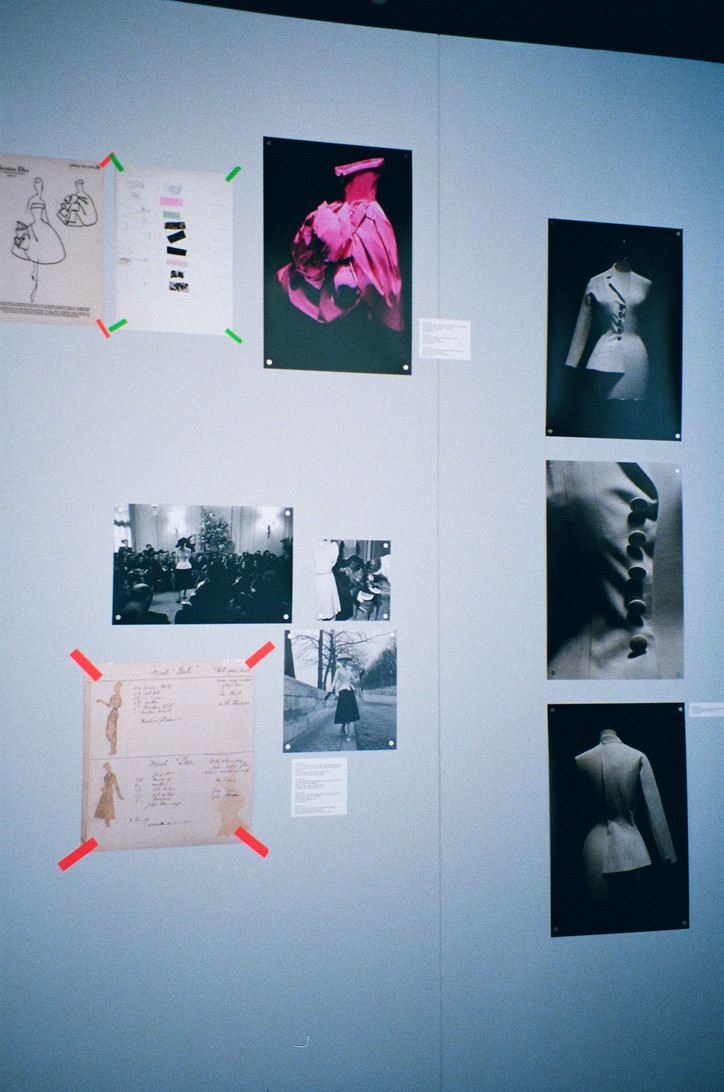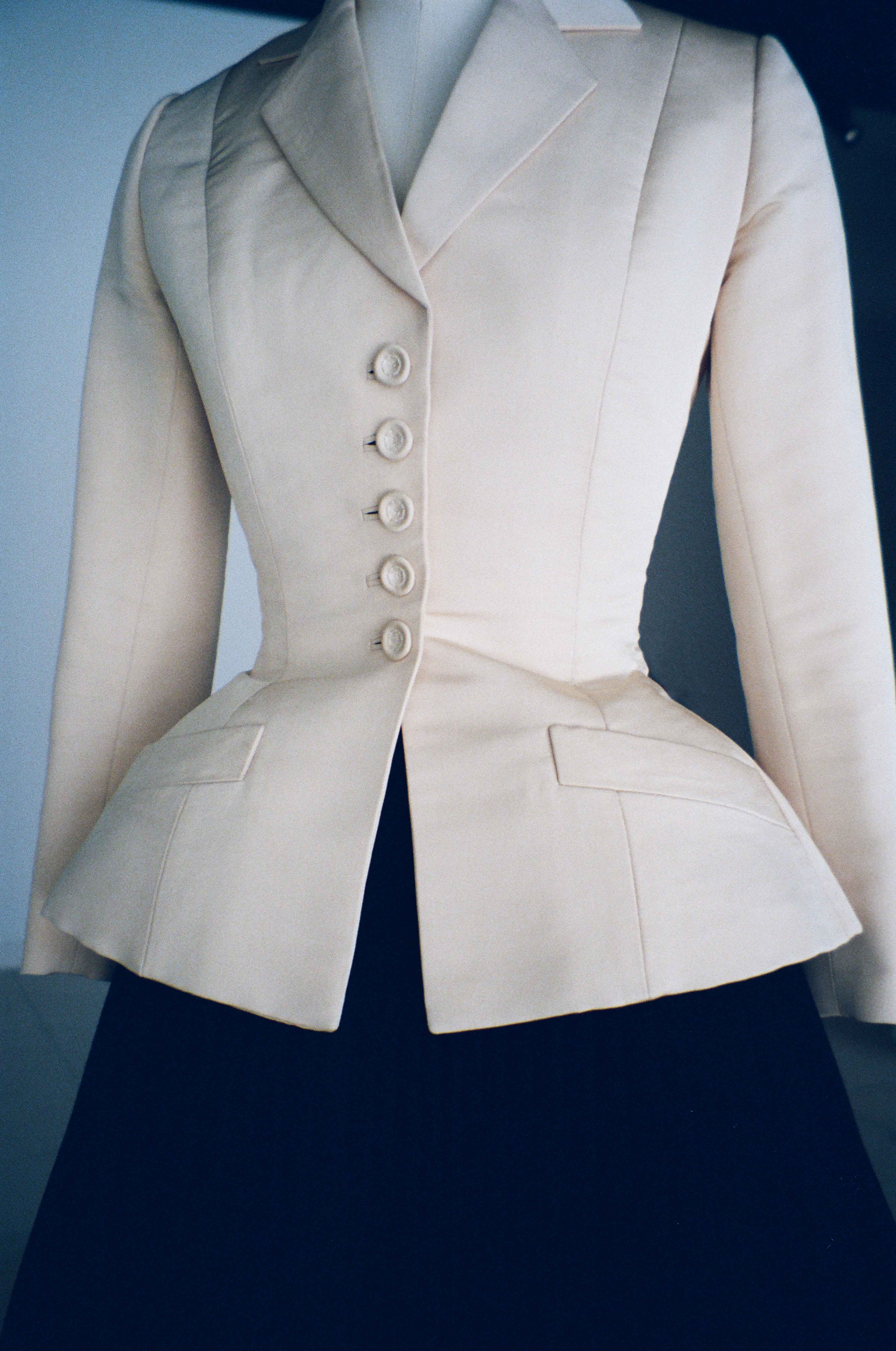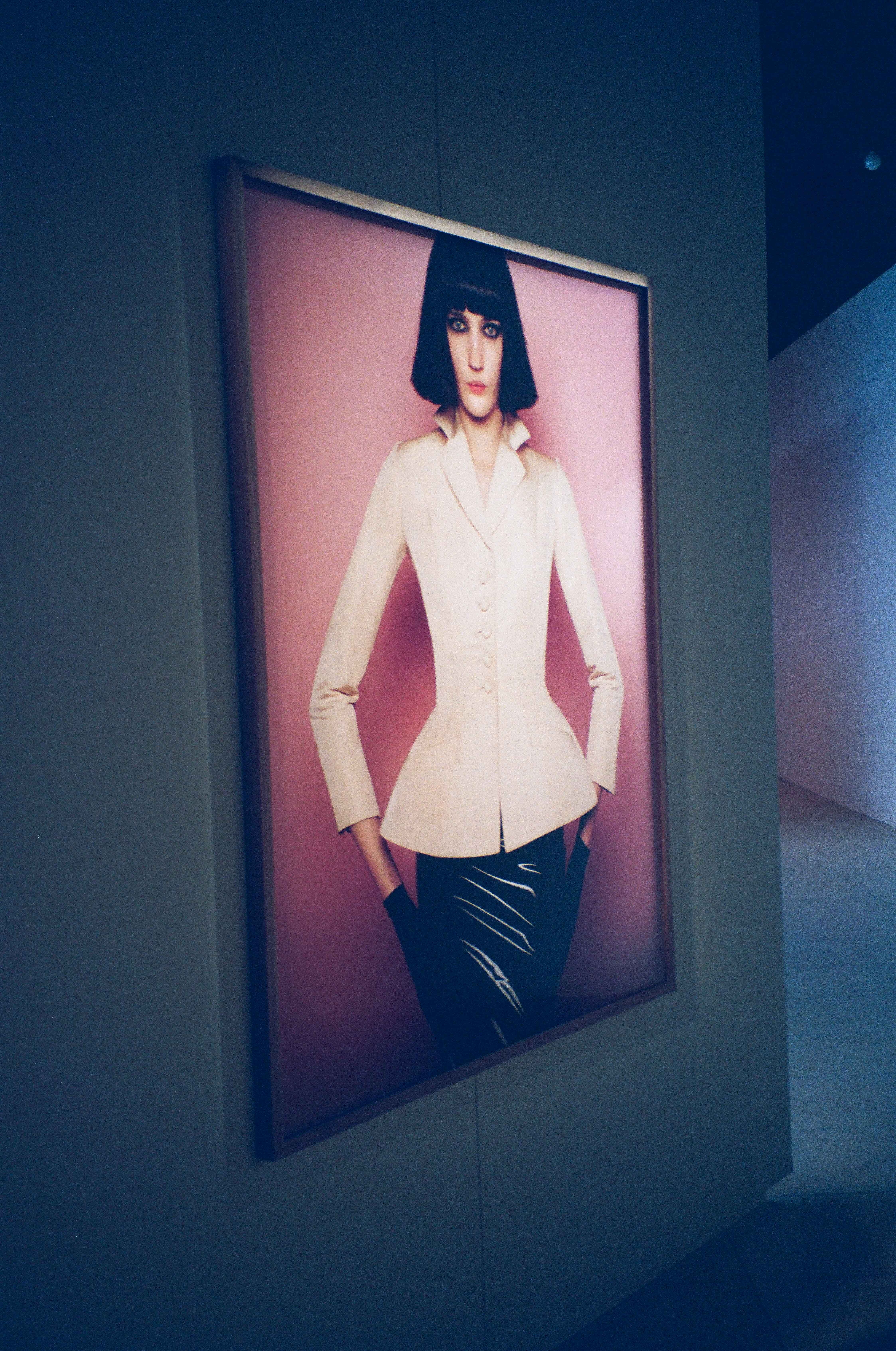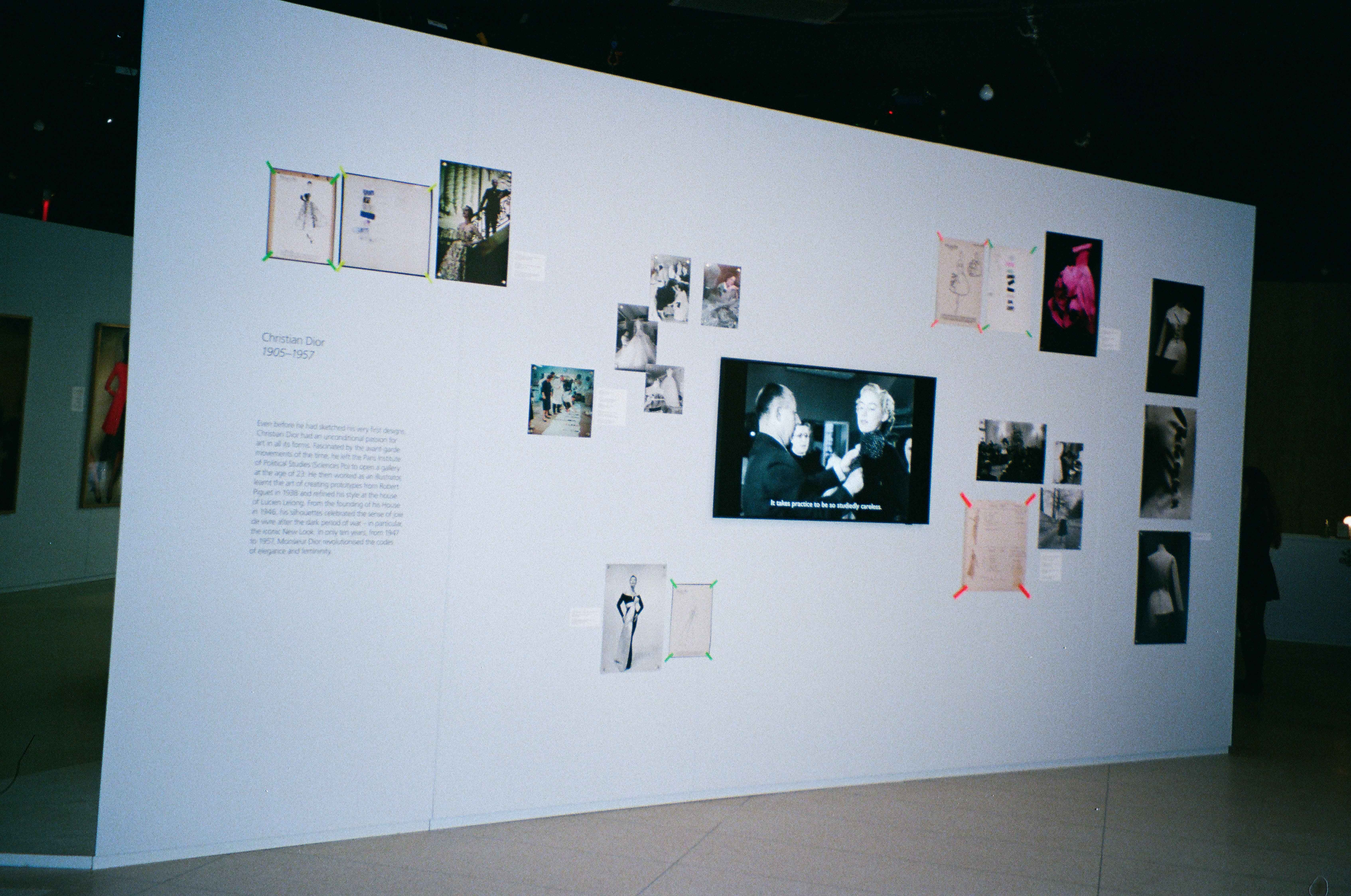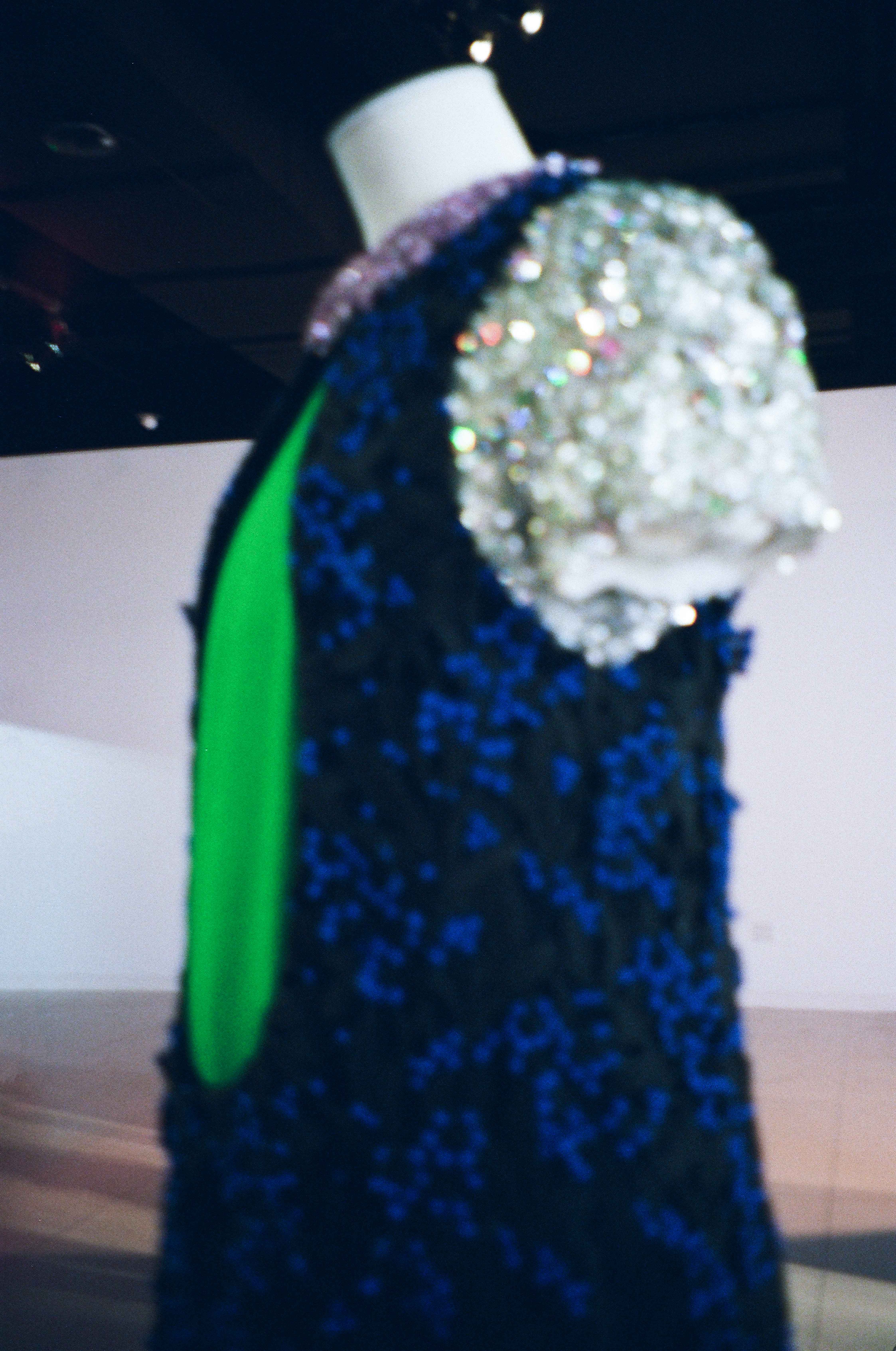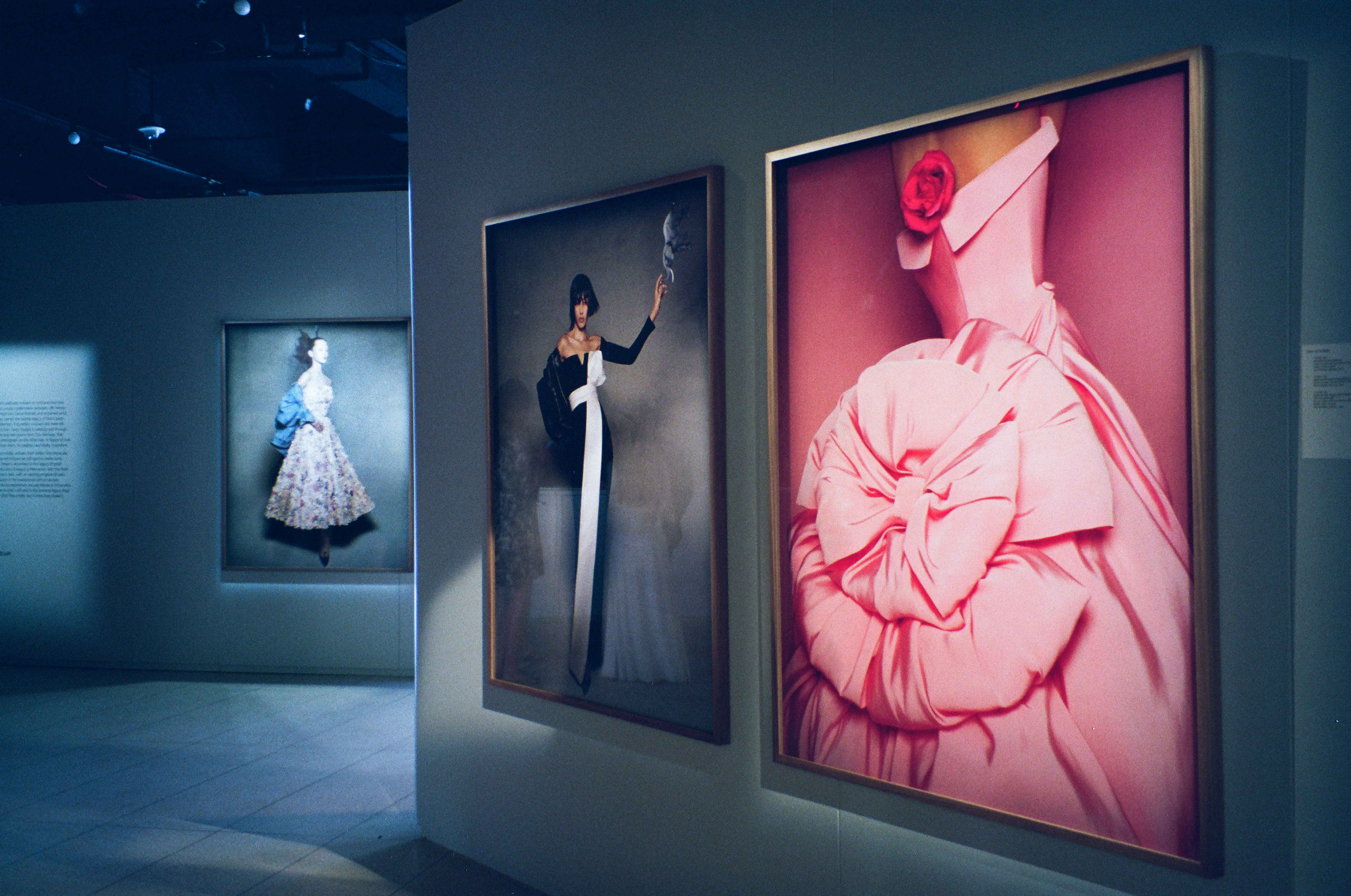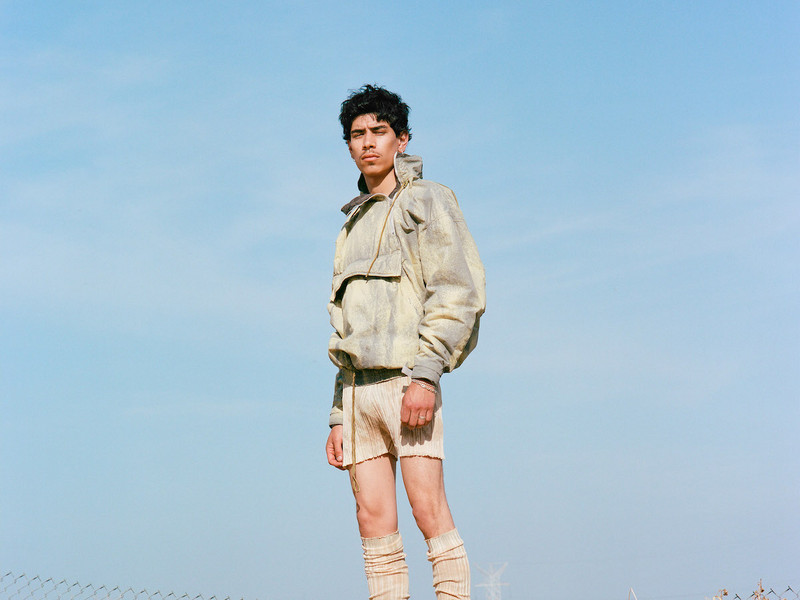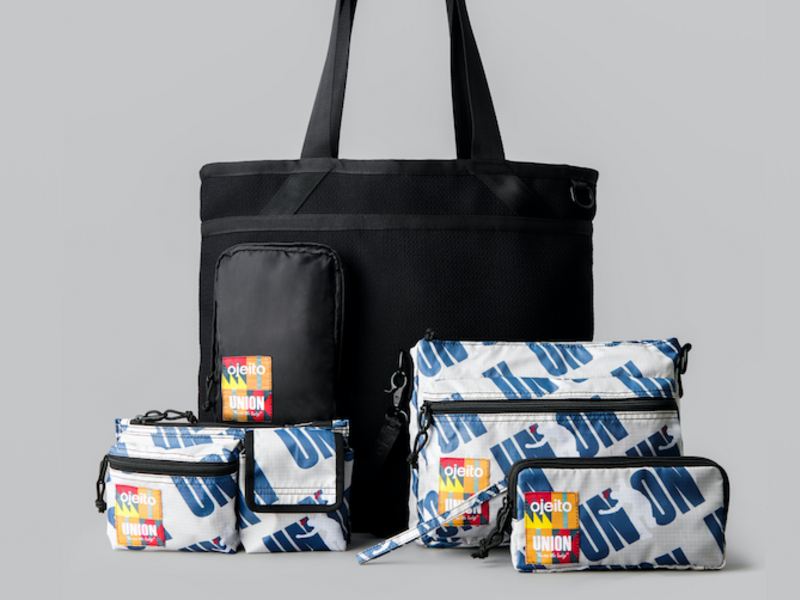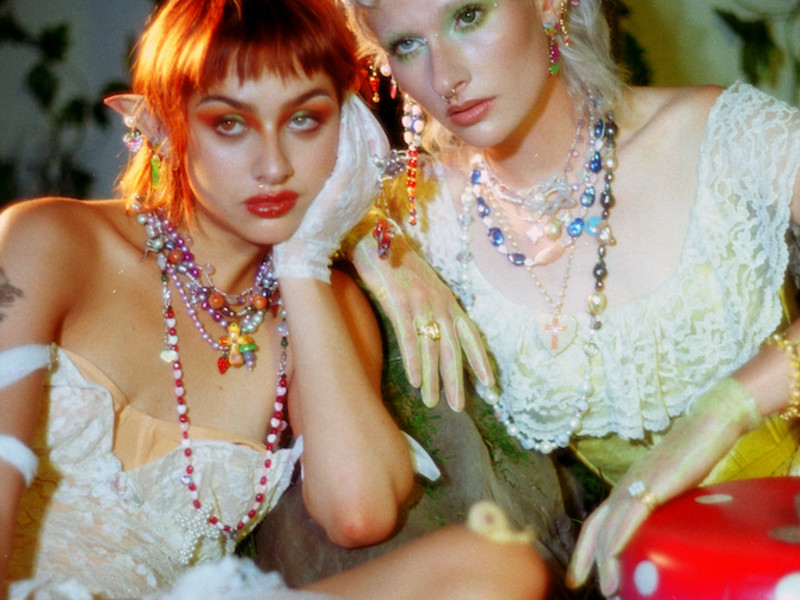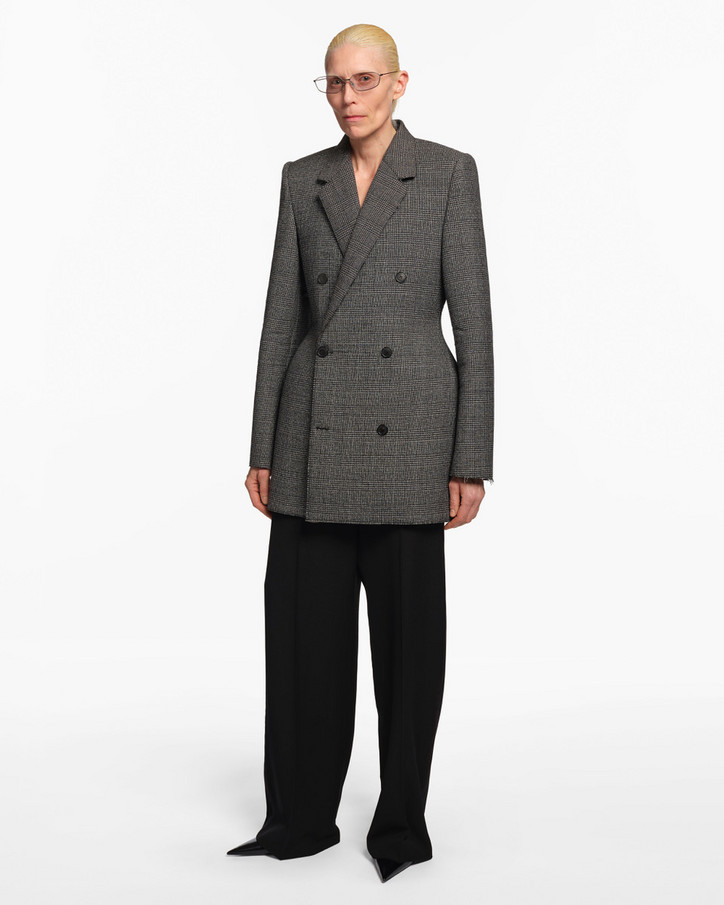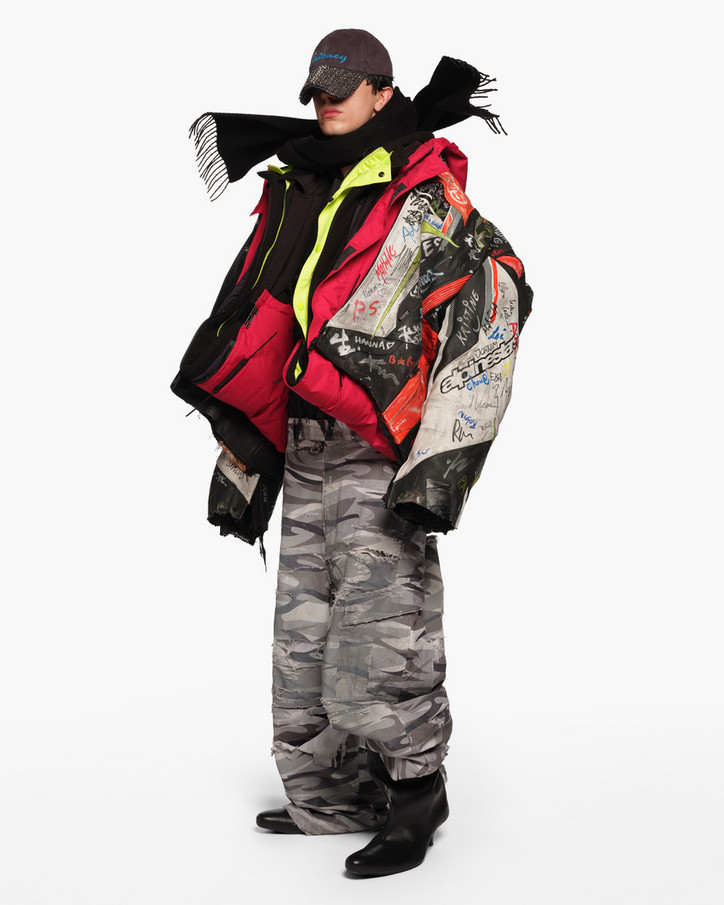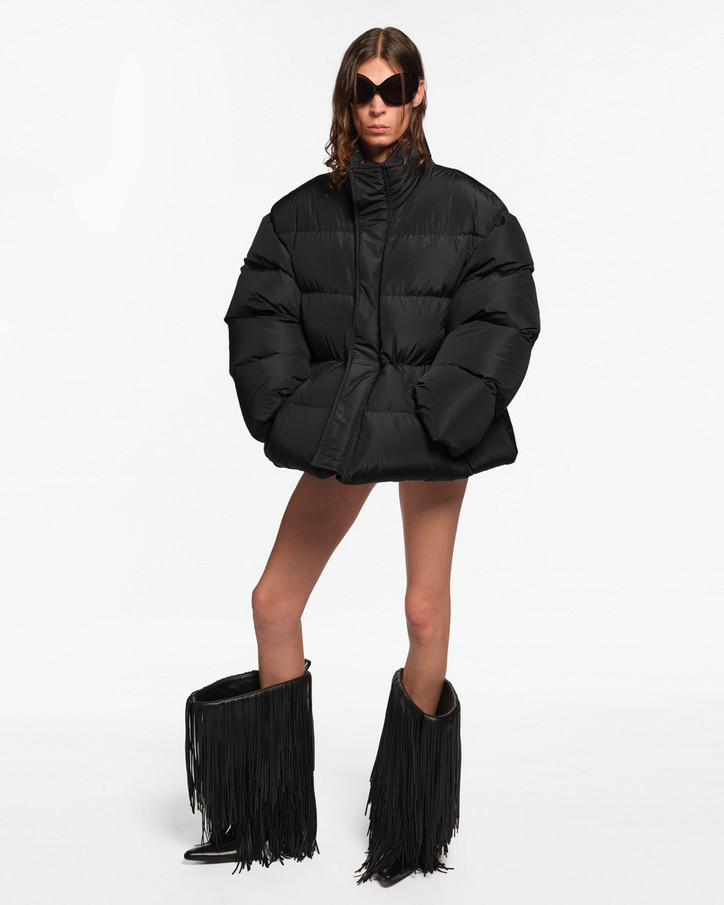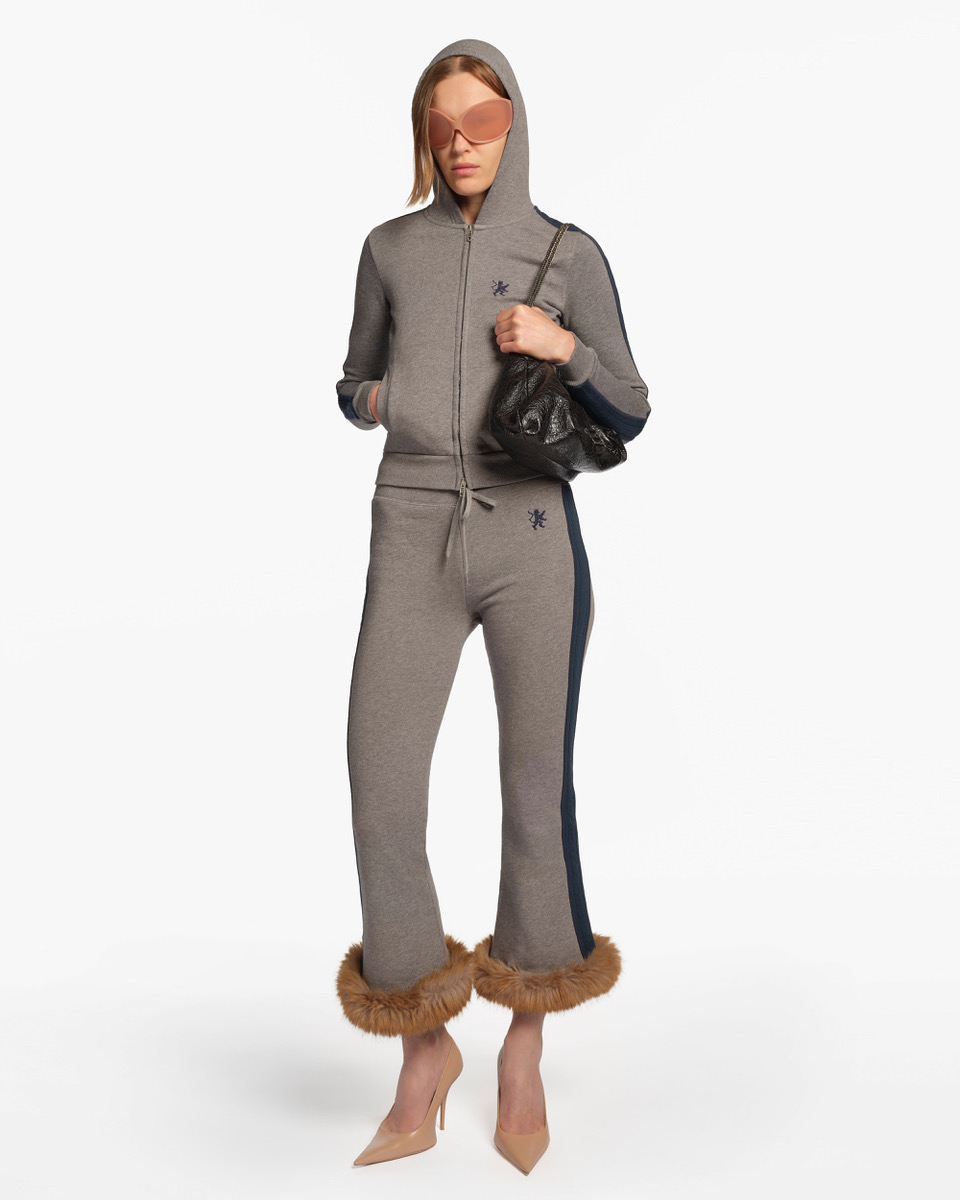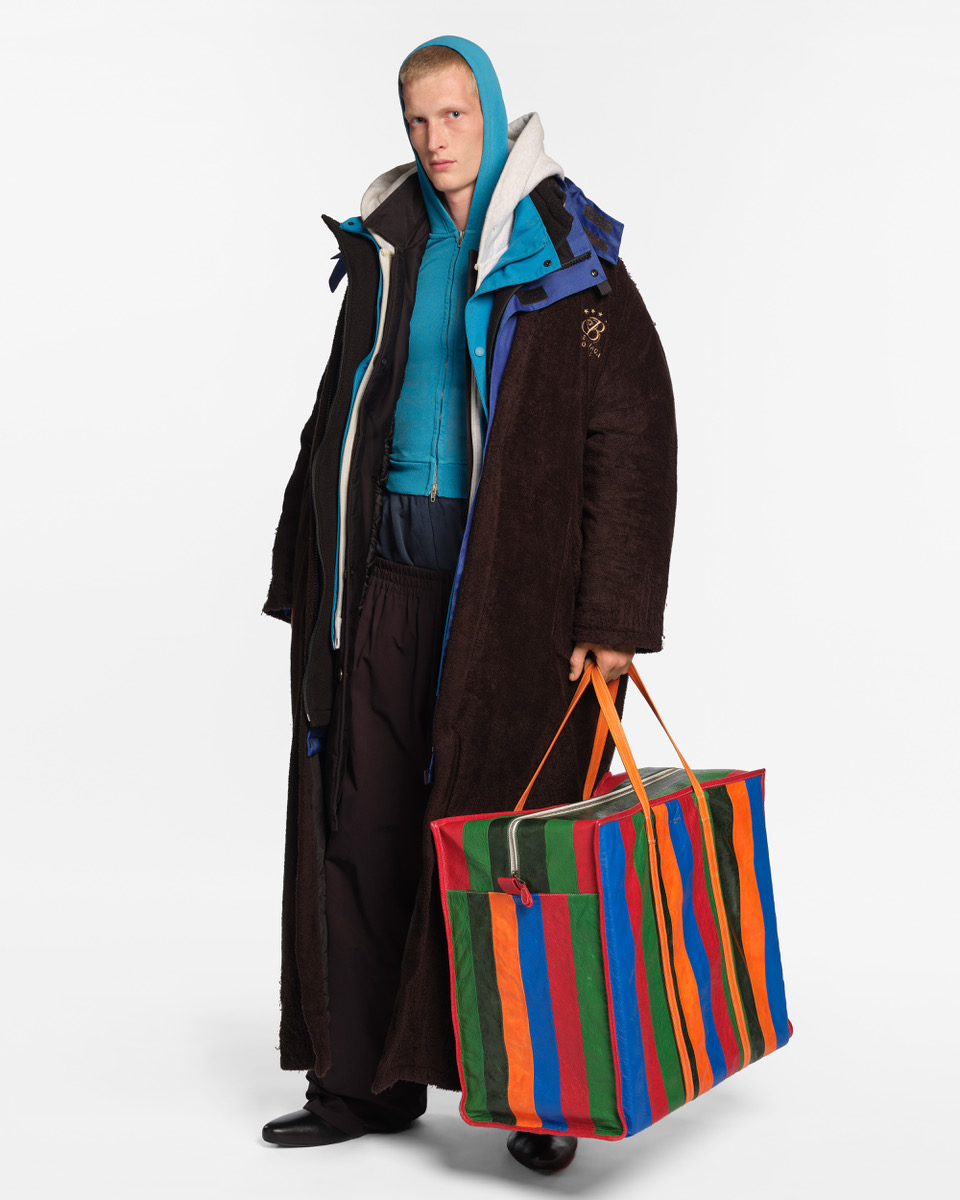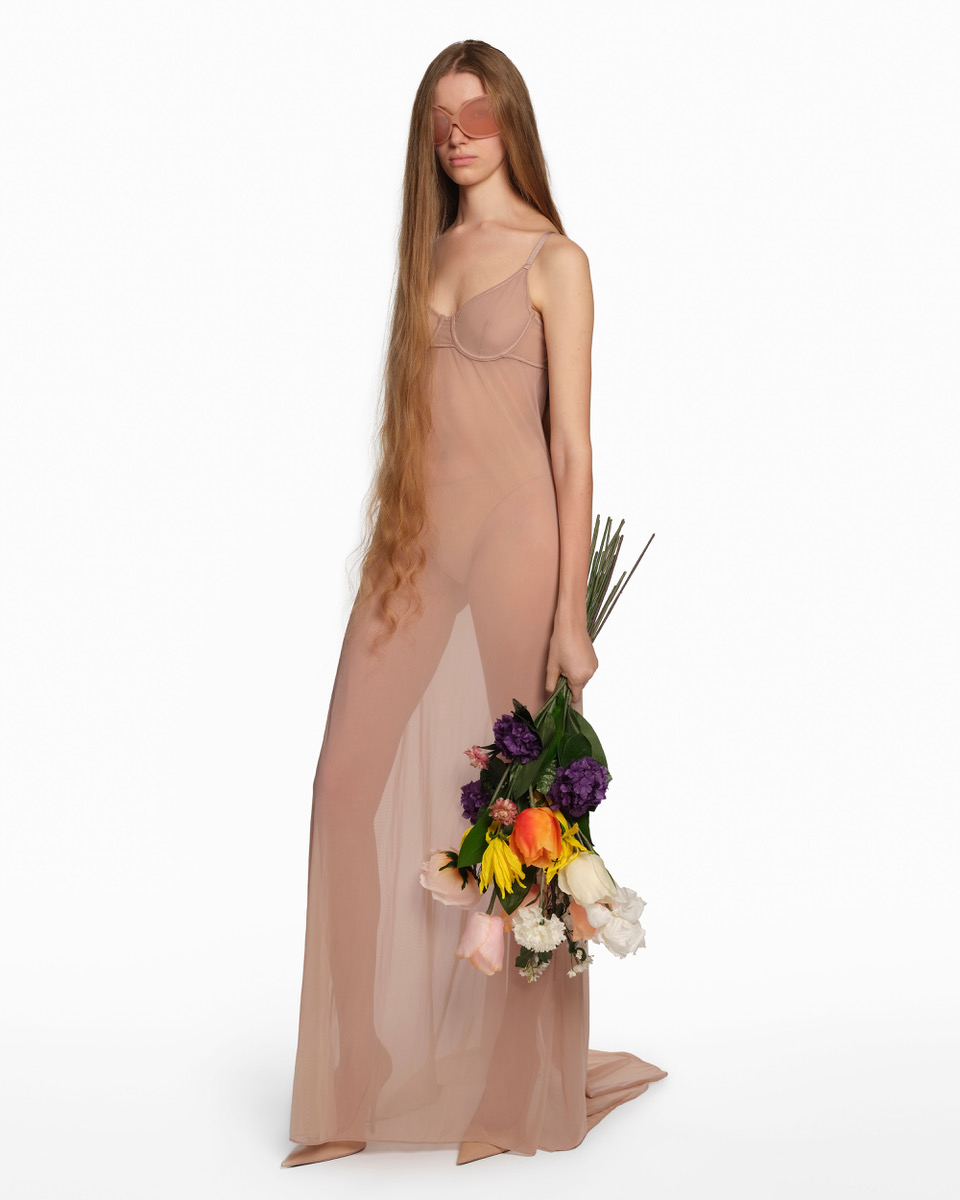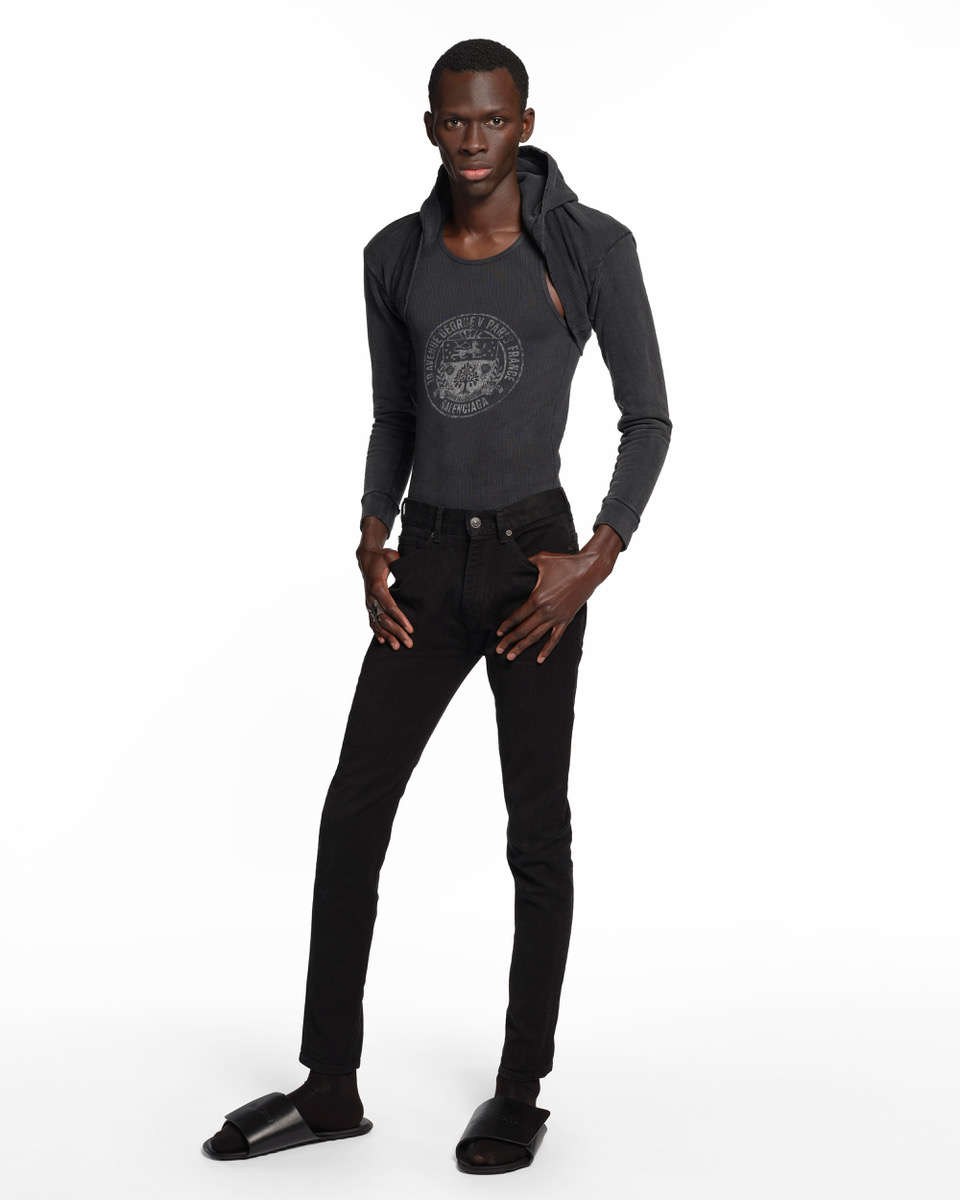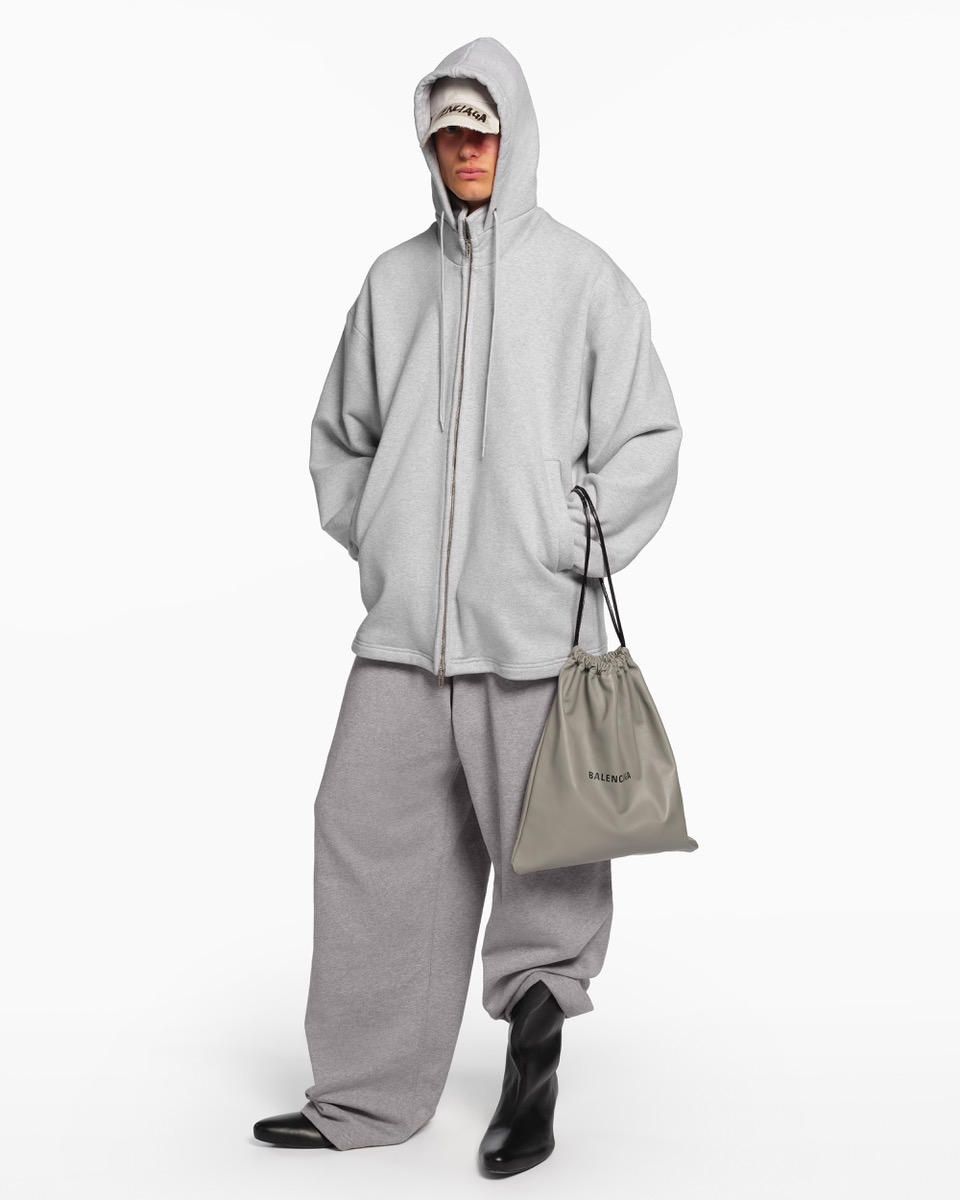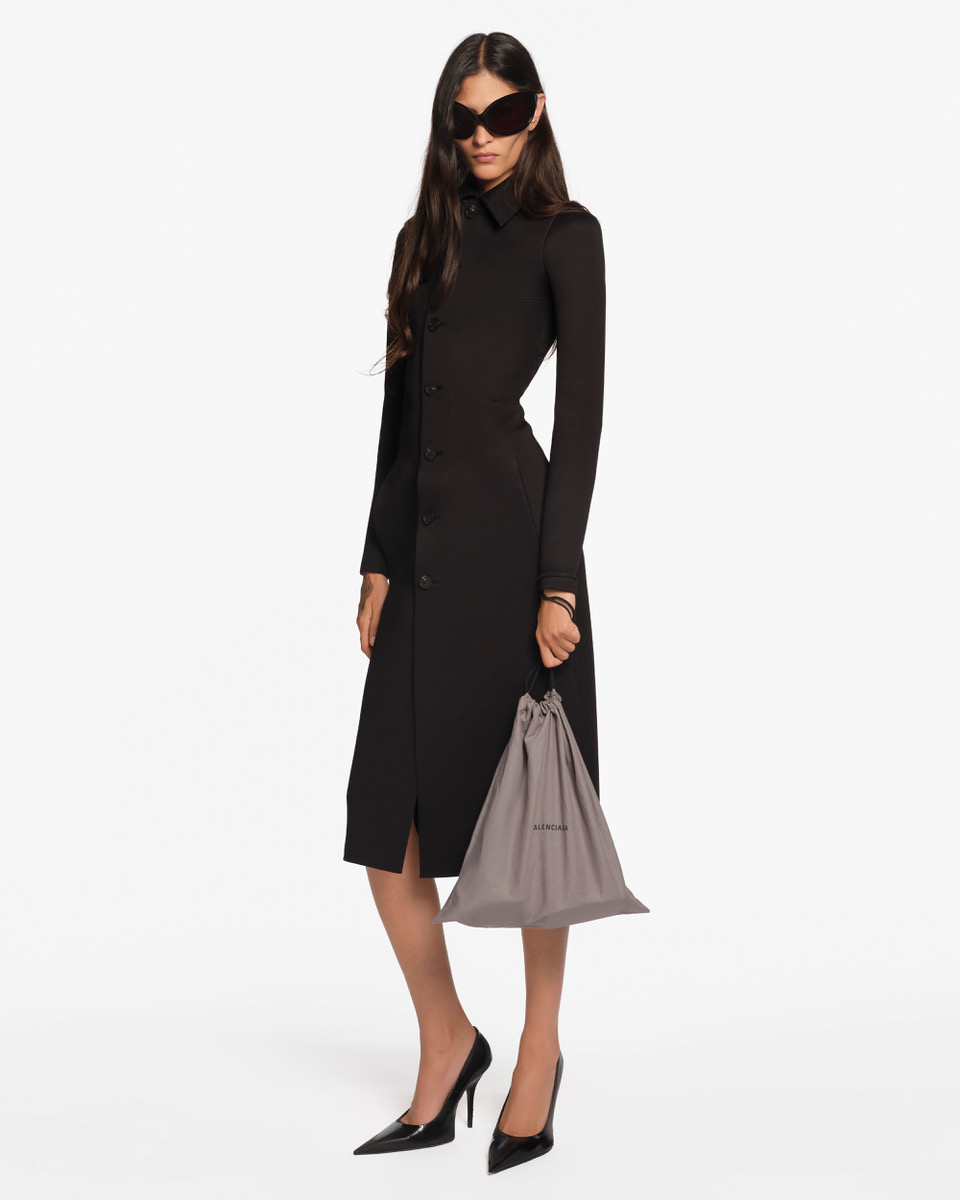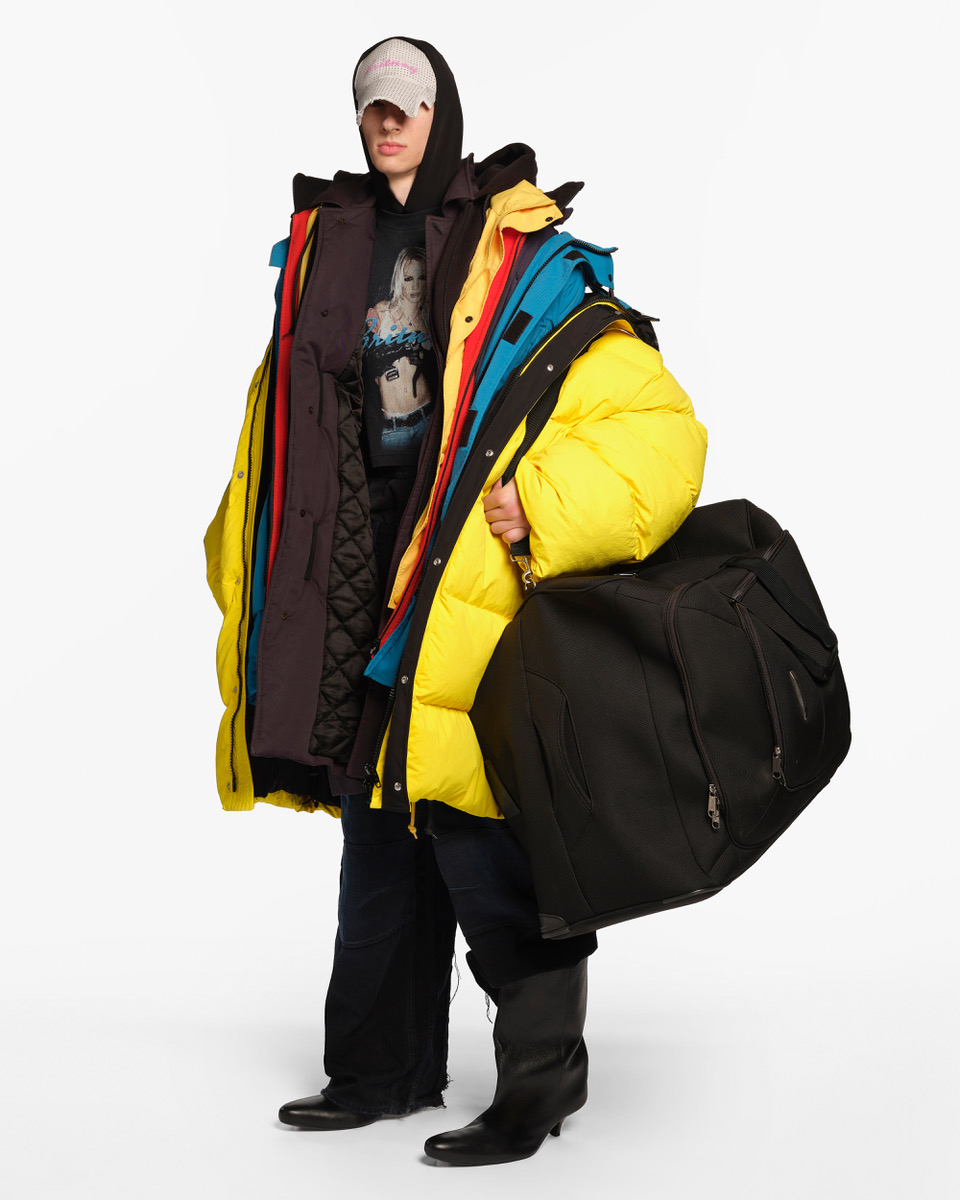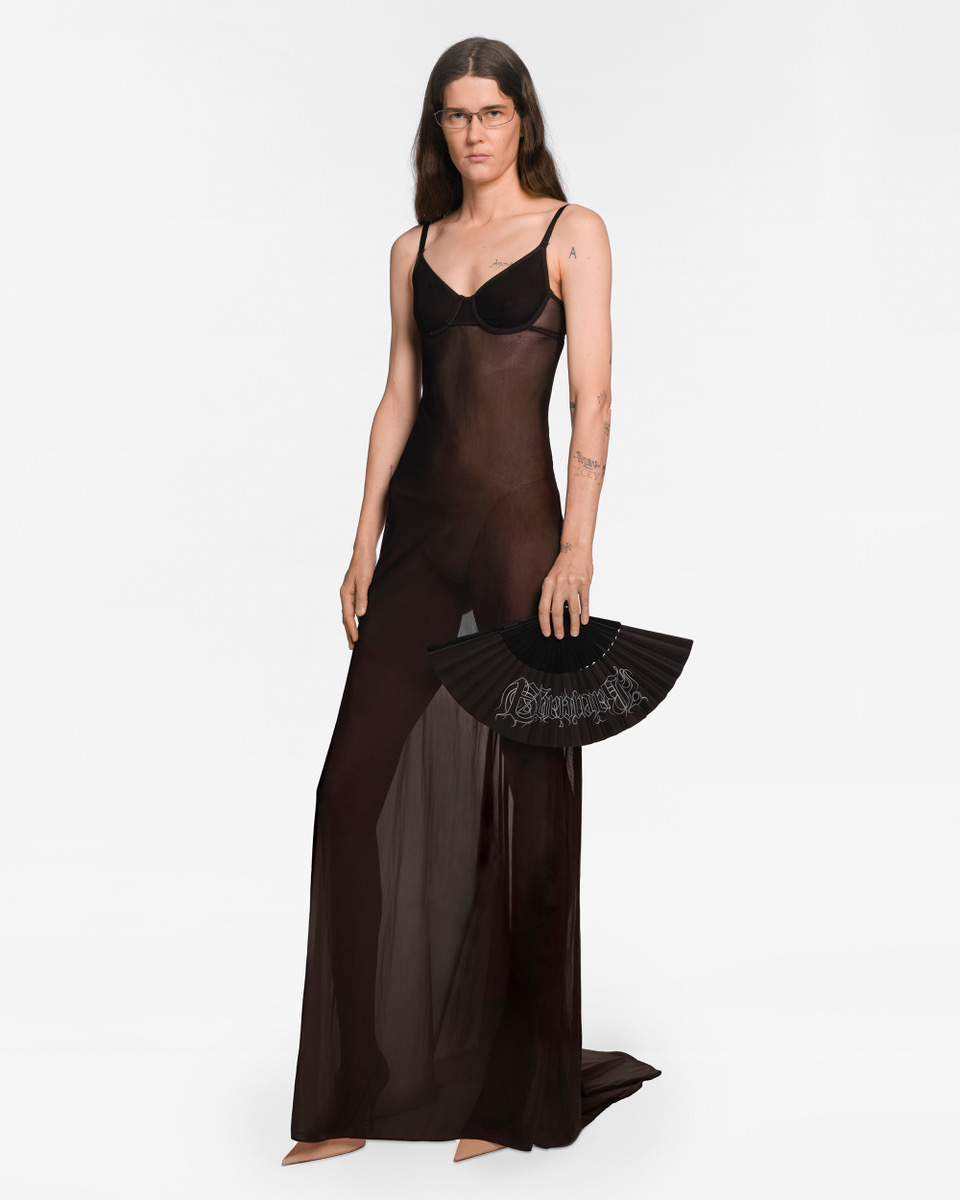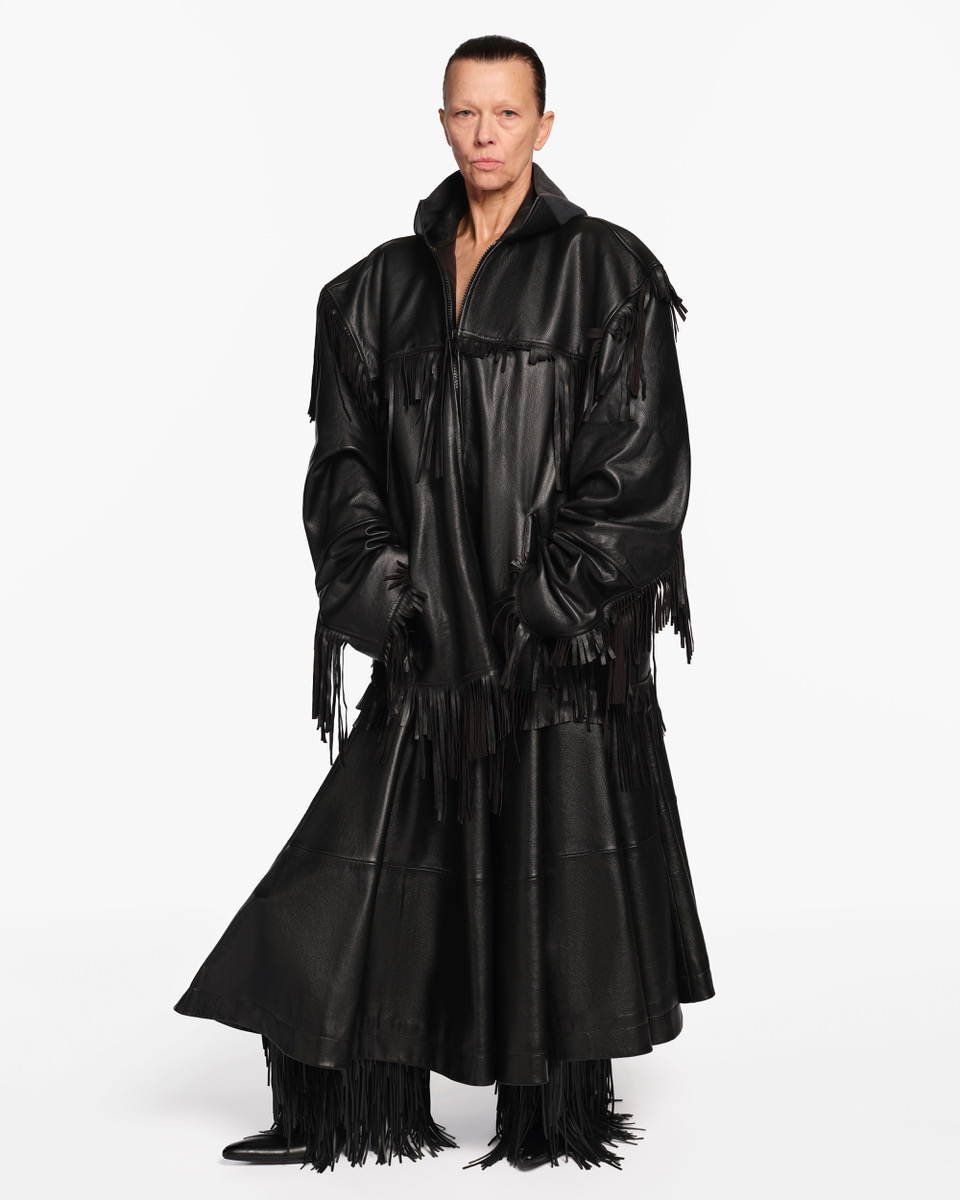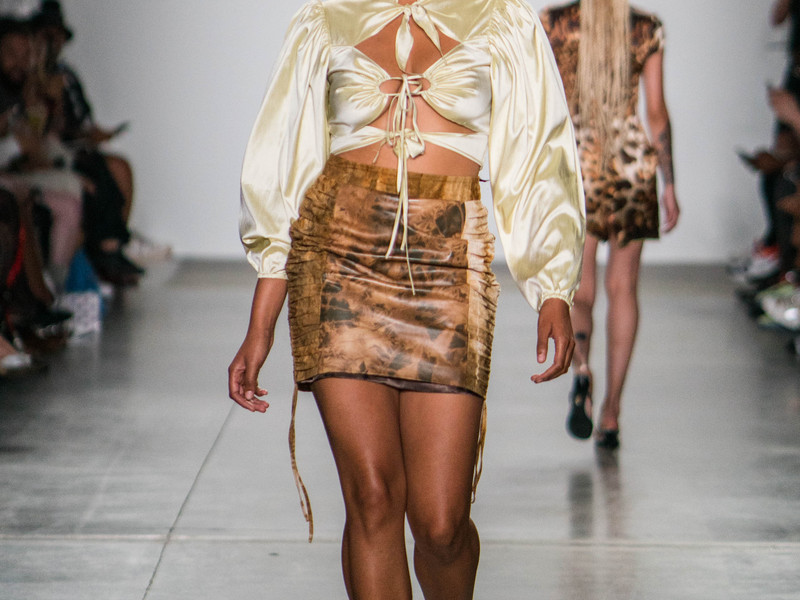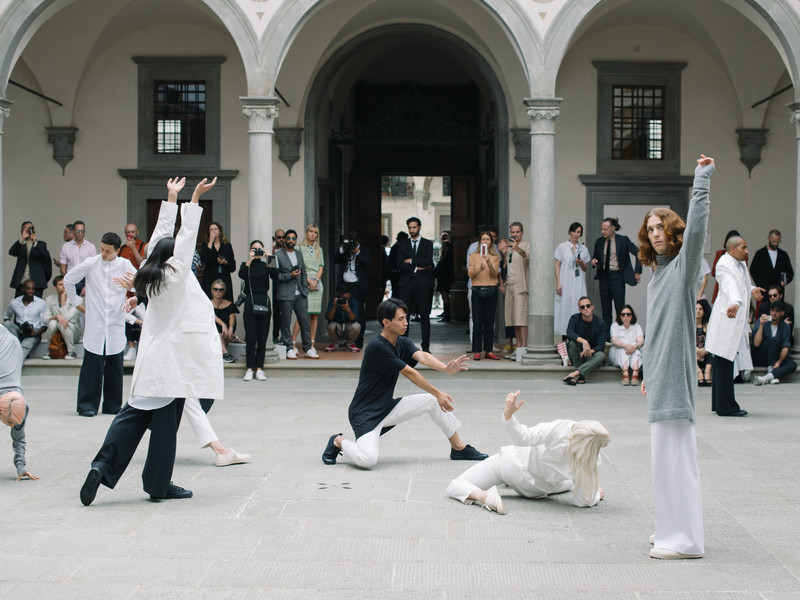Behind the Scenes: Barragán's America
This sentiment is one many stray from during modern fashion weeks, some choosing to highlight diversity as a cornerstone of the metaphorical fabric of their brand, some to save face. But the fear of being “cancelled” is one Barragán leans into this season, in a multitude of ways. There are many things I have felt this fashion week. Hungry, inspired, overwhelmed by the line at Heaven, underwhelmed by how few people knew the Maya Hee Maya Hoo song Doja Cat attempted to cover… The hair and music have been overall great. More or less it’s been a nice time. But what wasn’t just a nice time was Barragán. And for that, I am grateful.
From the all white cast, to the references which spanned homoeroticism to meth addiction, botched botox to Limp Bizkit and border politics— references which, unlike many shows, delivered — there wasn’t a moment during the presentation I felt at ease. Models in “Karen”-esque hair with bloodied, bulbous prosthetic lips emerged from a graffitied port-a-potty kicking piles of literal garbage and dollar bill-printed toilet paper down the runway. But far be it for Barragán to make a political statement just for show — true to form, each piece in the collection was magnificent. As always, the designer’s careful construction of the garments was a brilliant amalgamation of 90s cyberpunk — zip off cargo elements — and archive Mugler in its diligent intricacy of shape, fit and construction.
To have a sense of humor, albeit a dark and nauseating one, without sacrificing taste or aesthetic sensibility is a true triumph and one we won't forget easily, no matter how burnt out we might be by the end of this exhausting and energetic fashion season. Victor Barragán made us feel, and think. “It’s social commentary, I look forward to seeing how people react. I know they’ll get angry. I hope they do,” the designer tells me, whom I arrived at the show ready to greet with some pre-written questions. Each went out the window by the time the show finished— the first thing out of my mouth, still half-agape, was, “Well you must love America.” Though I meant it laden with sarcasm, Barragán took the statement to heart, earnestly telling me, “I’m obsessed with America.”
